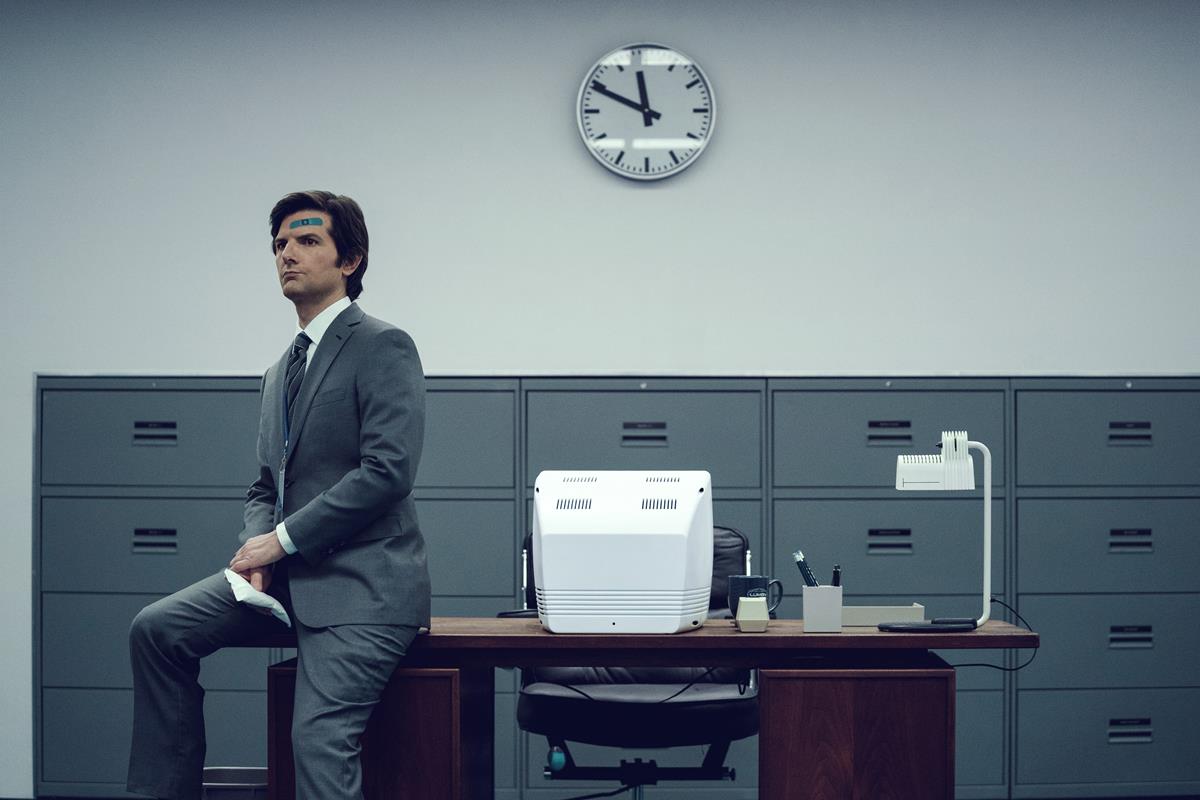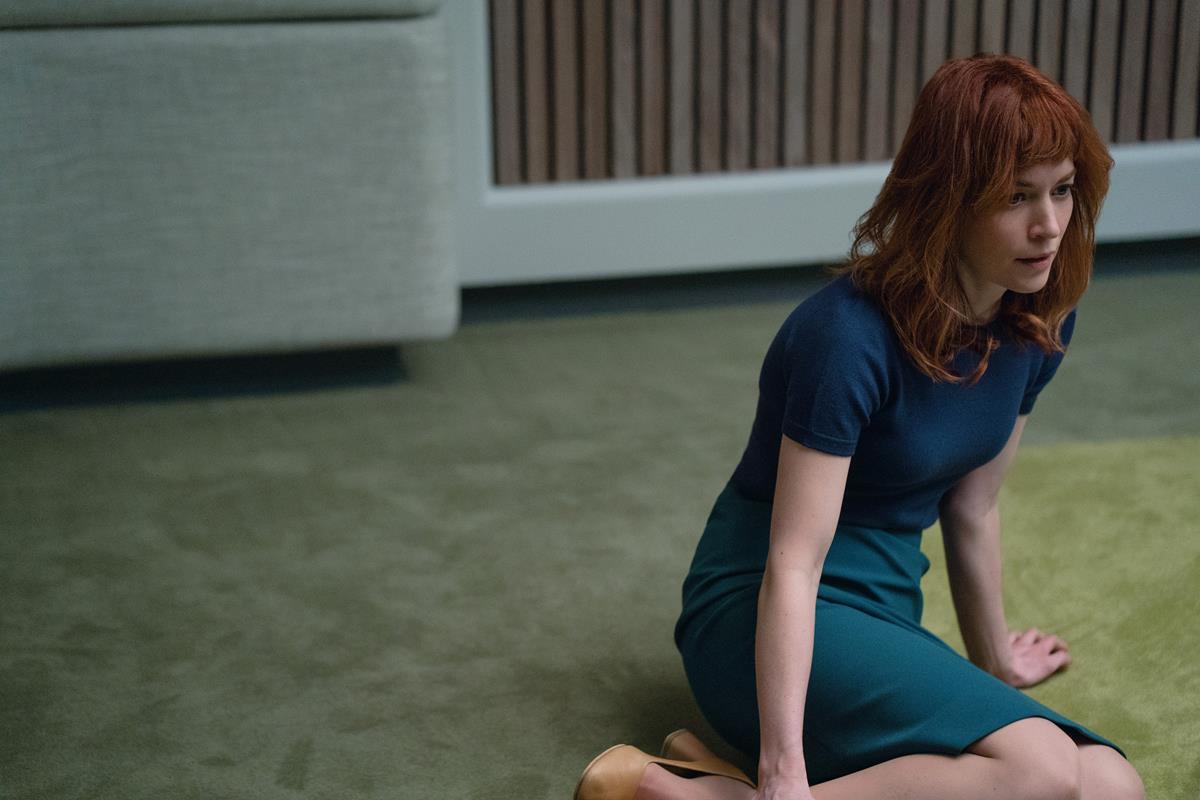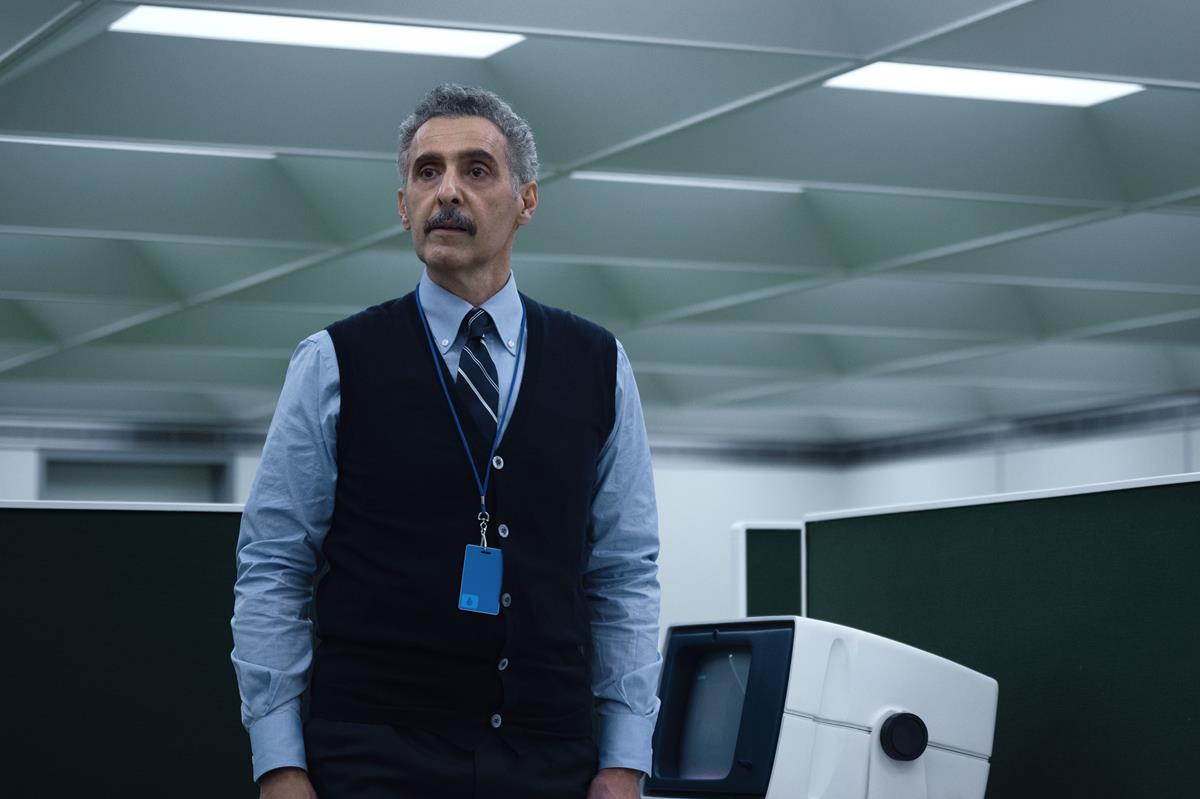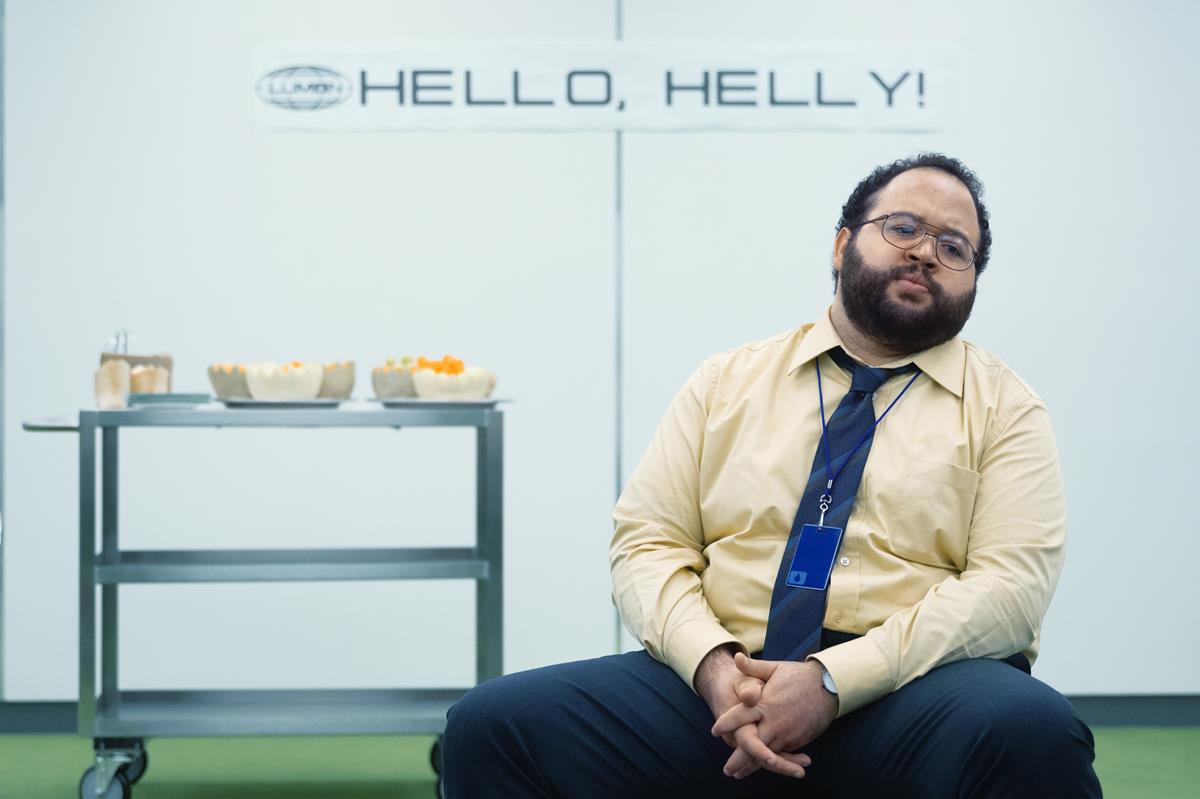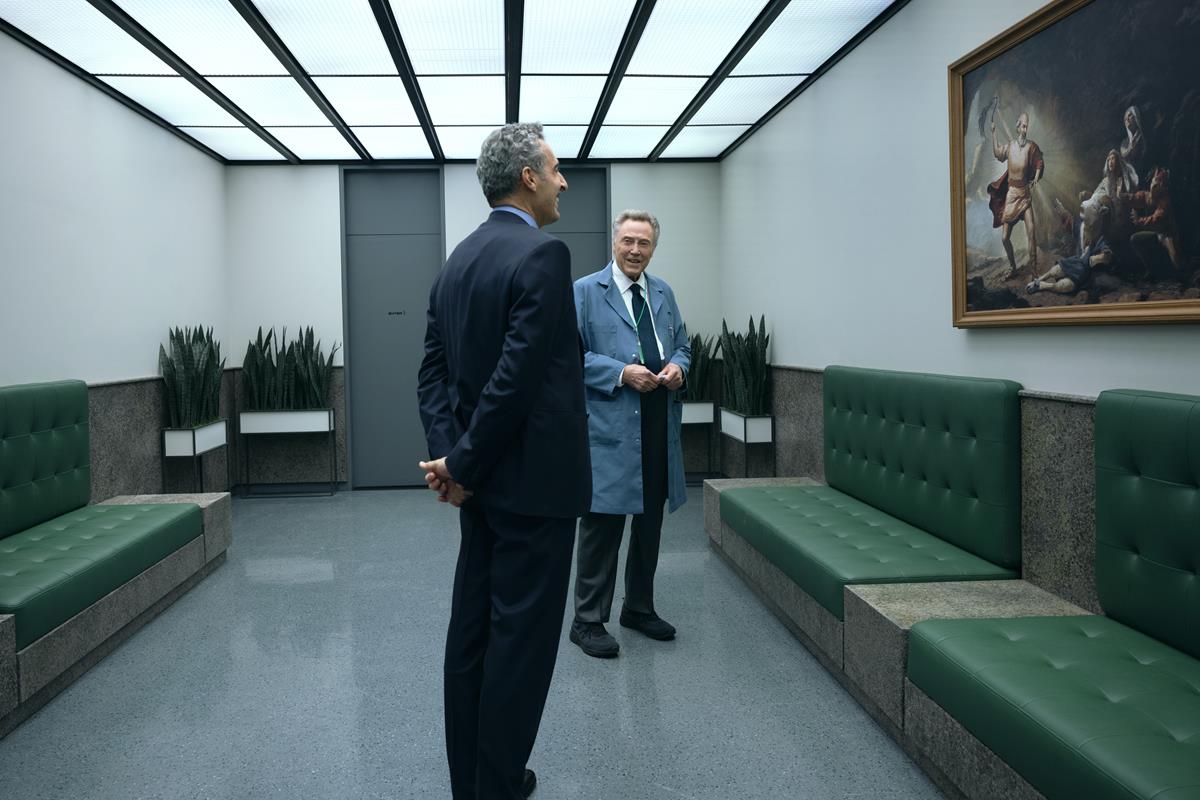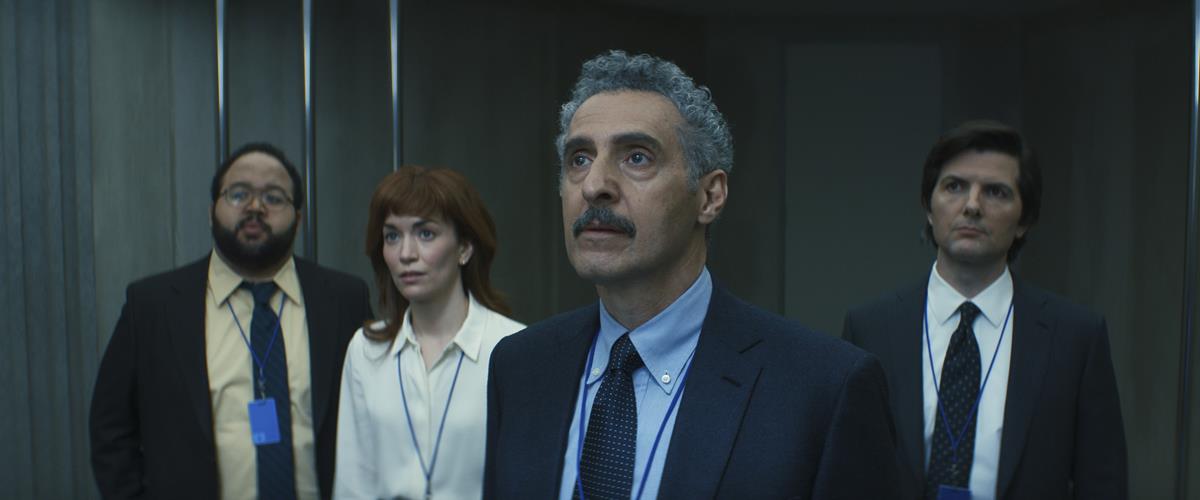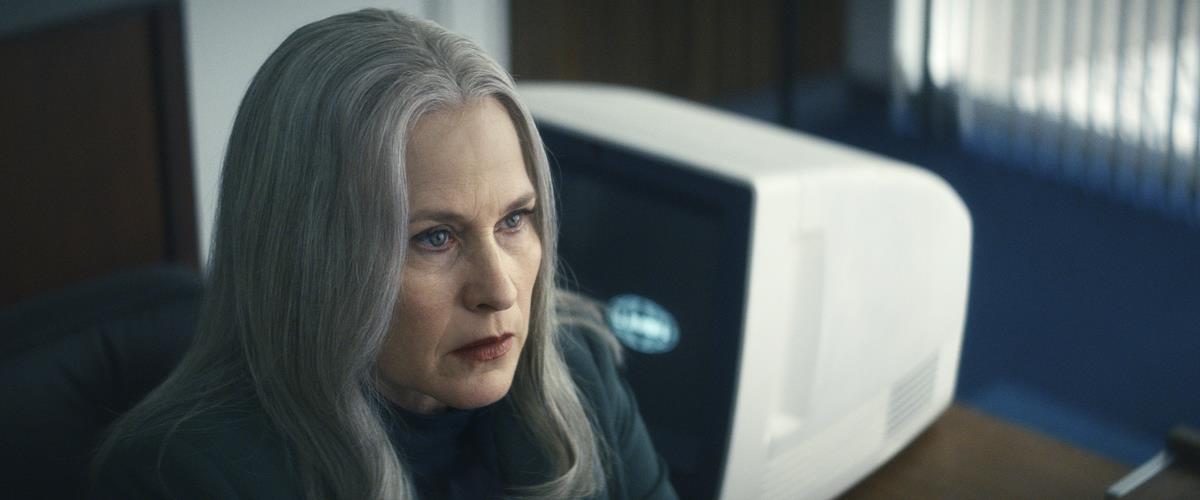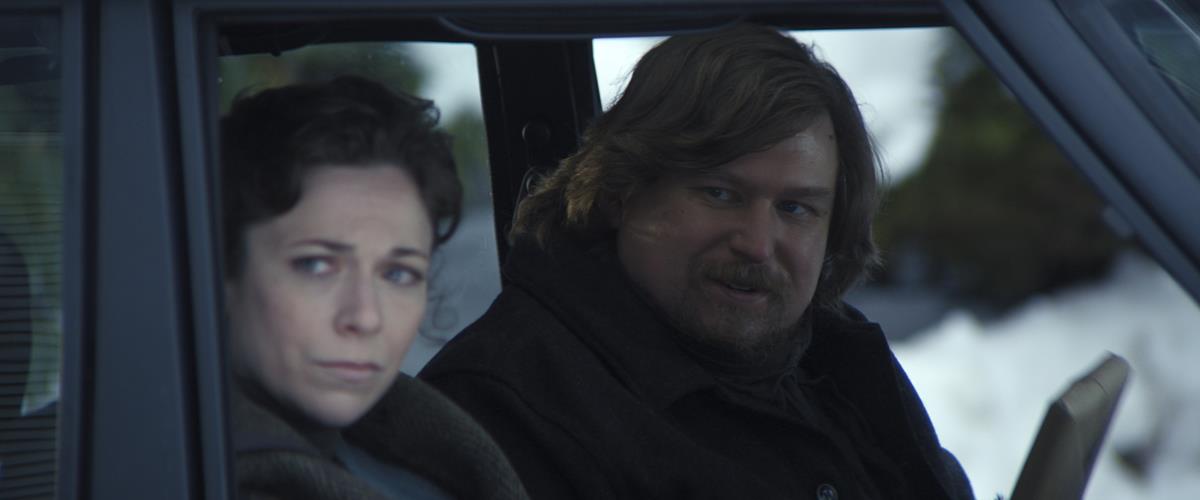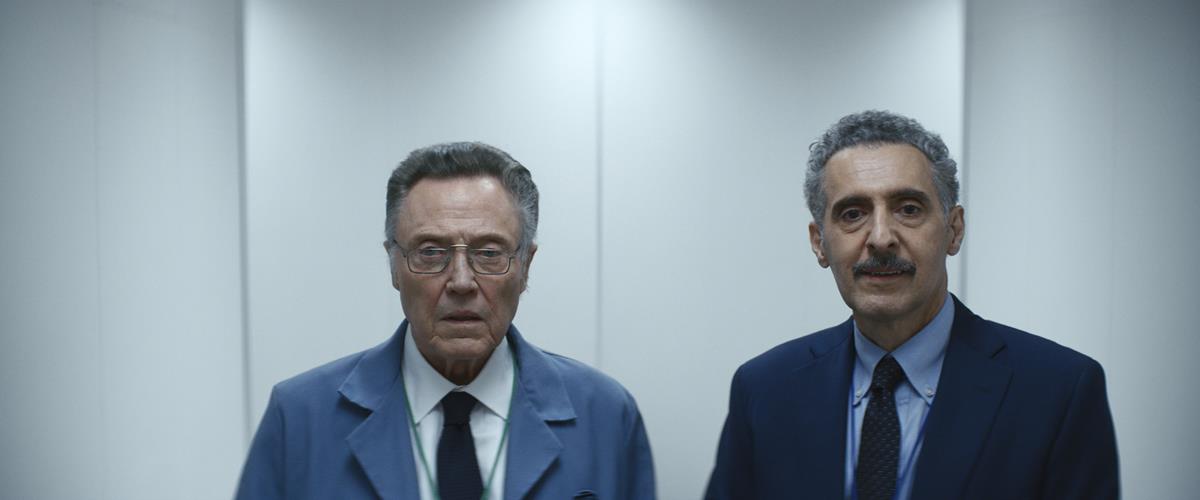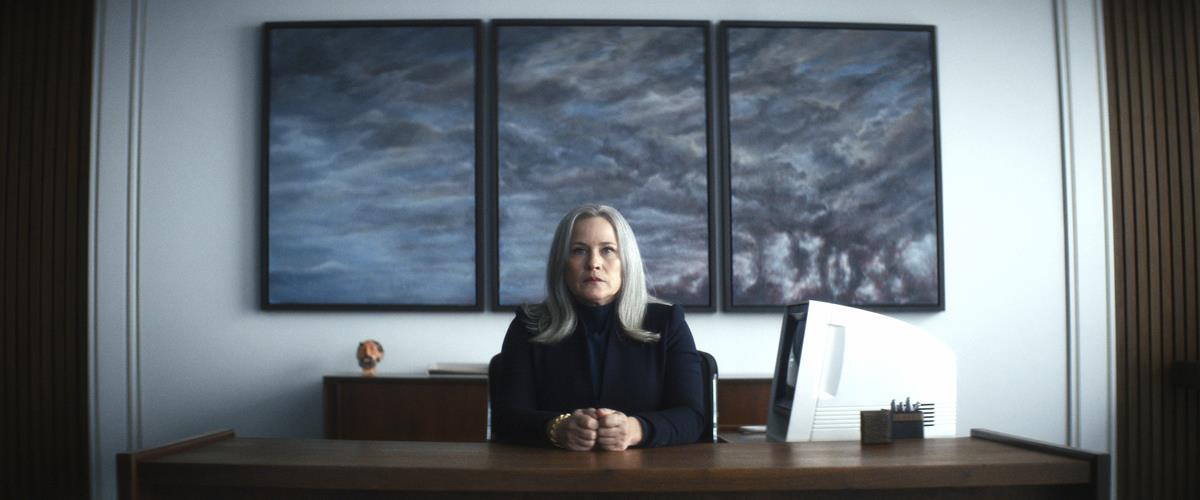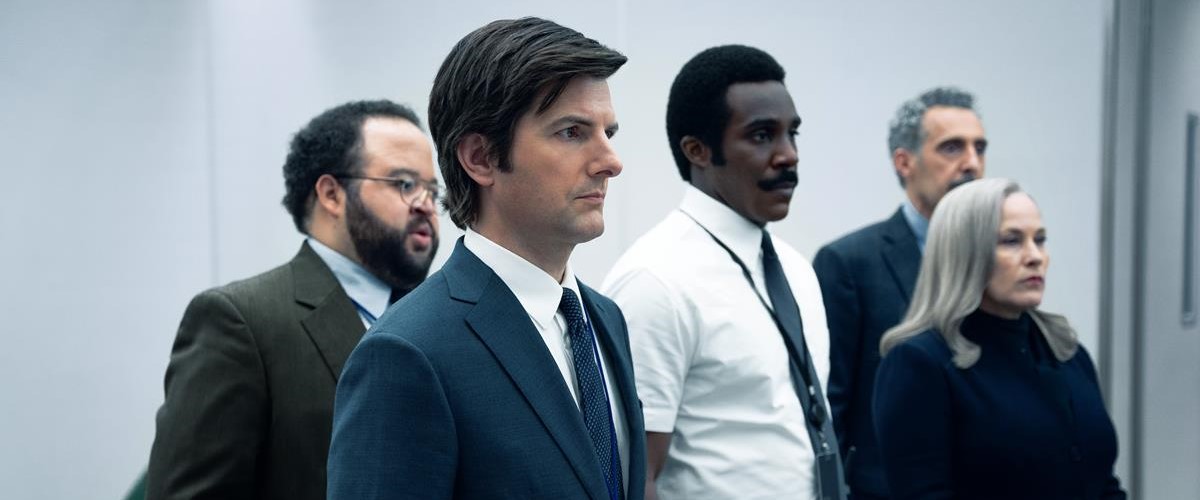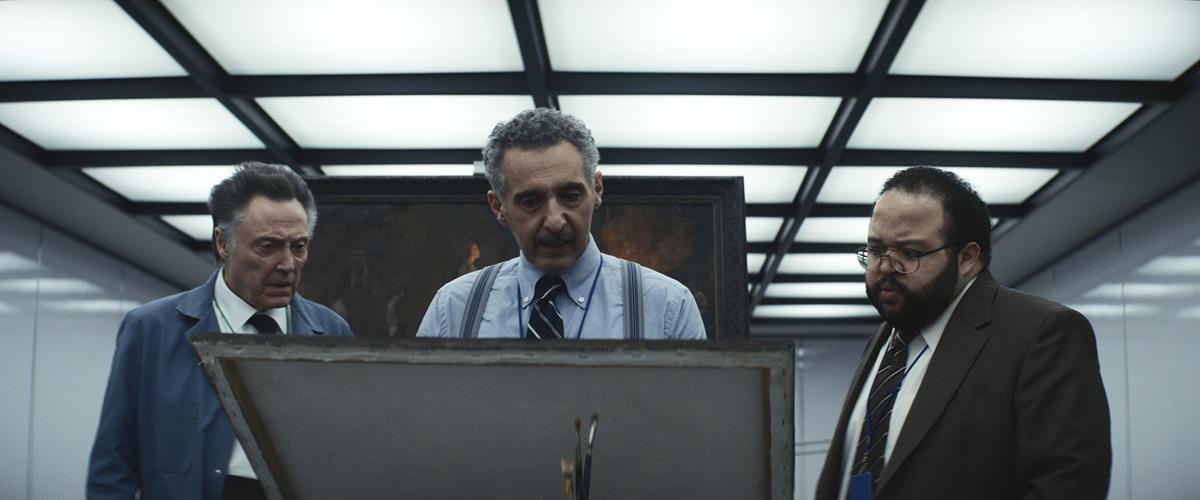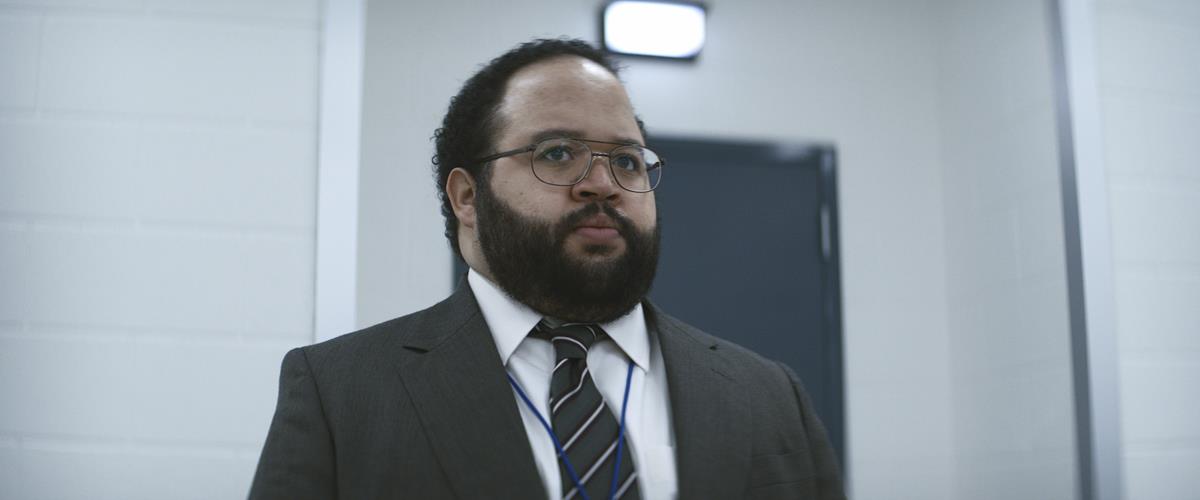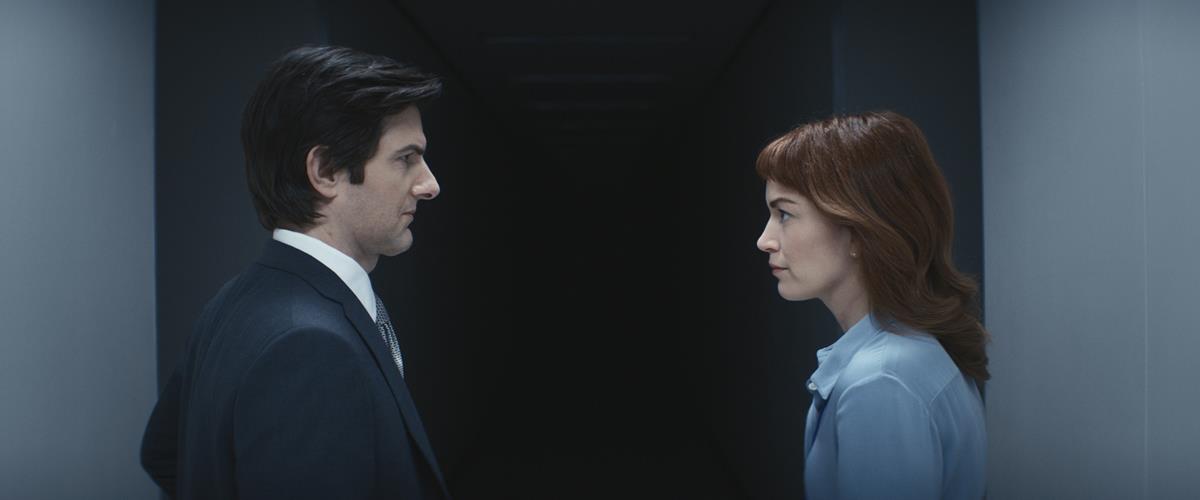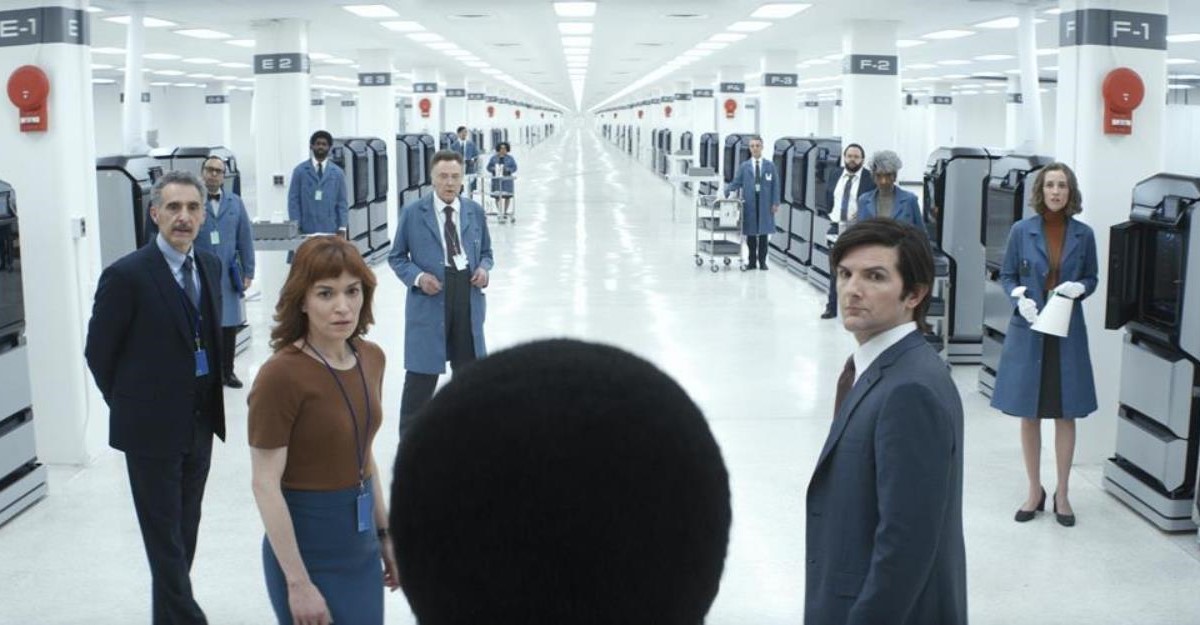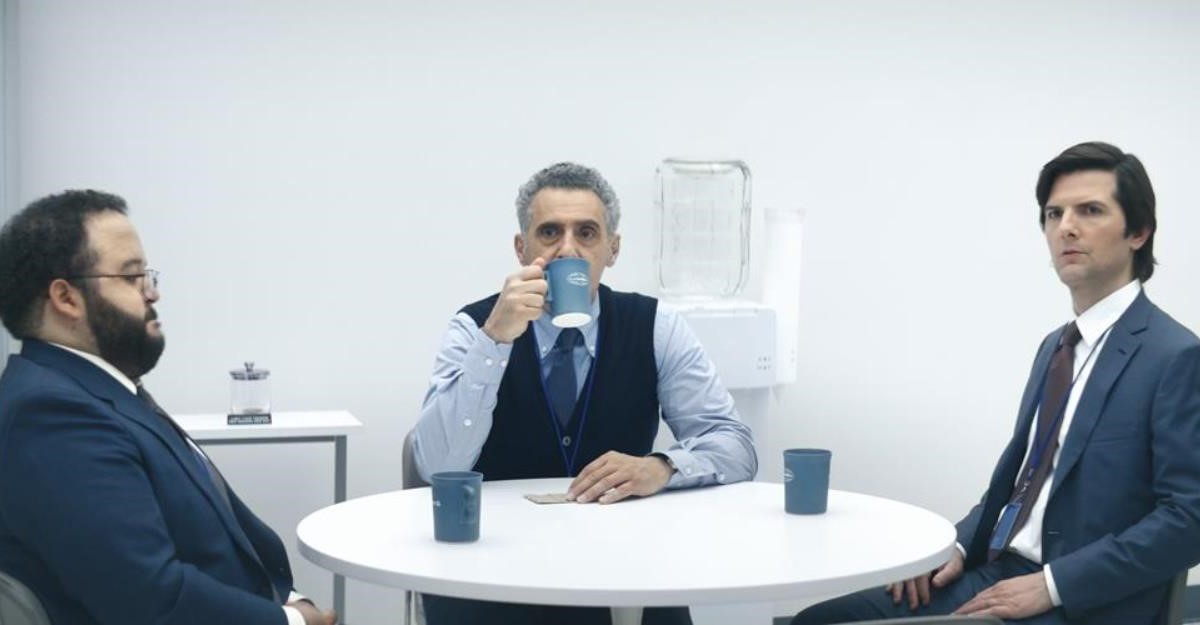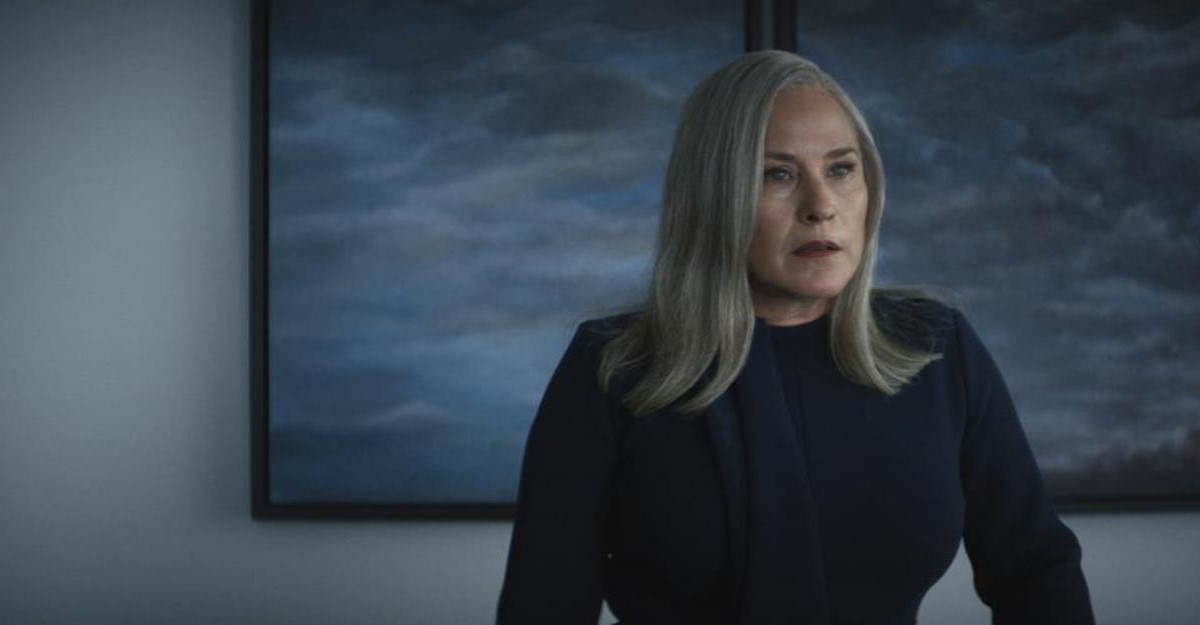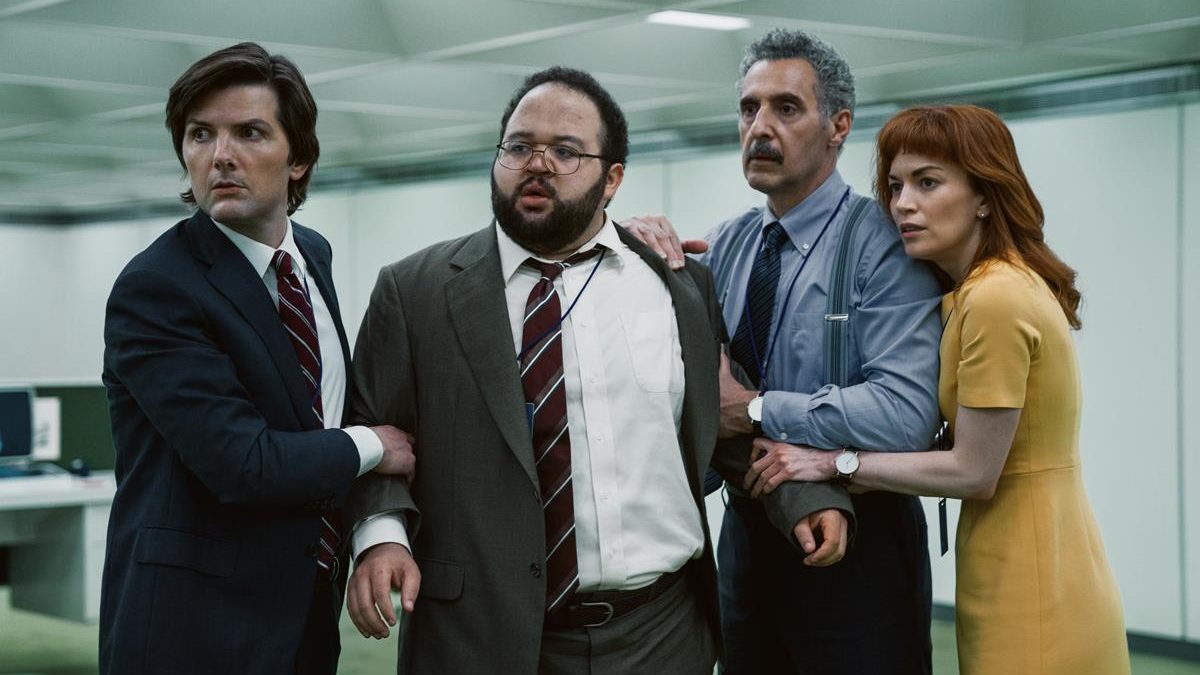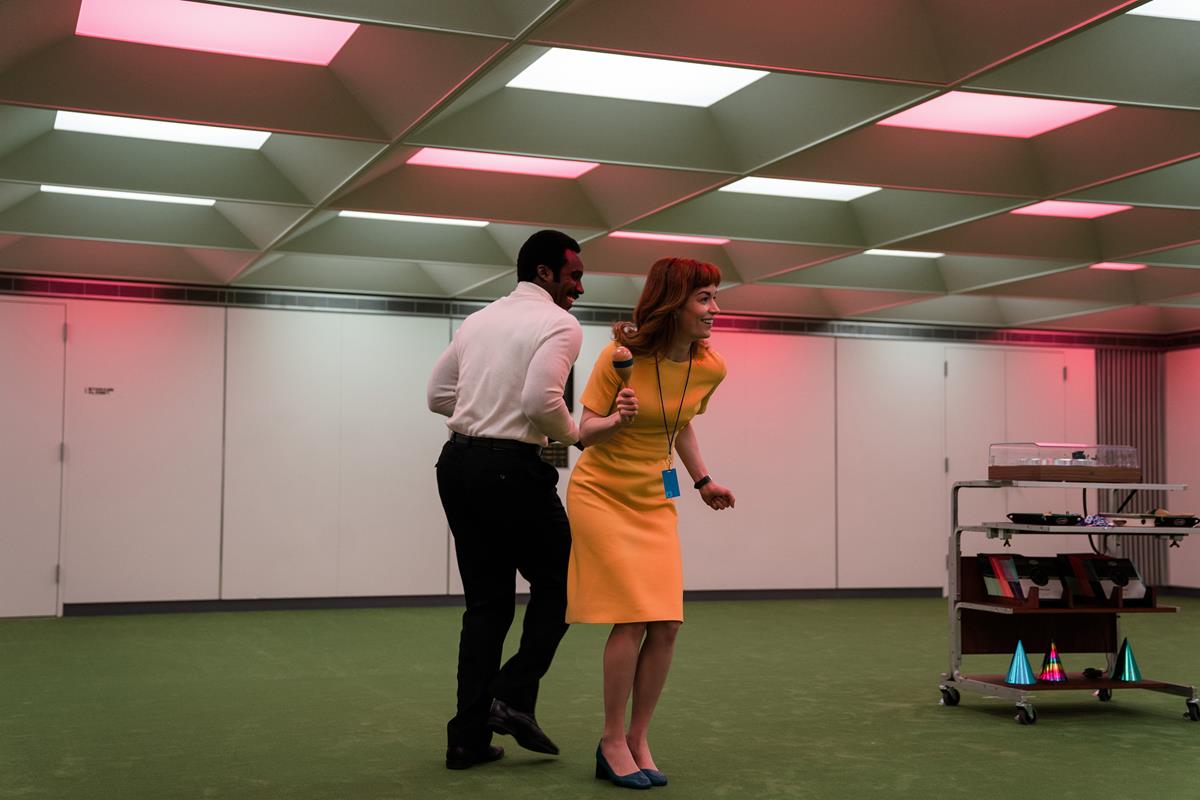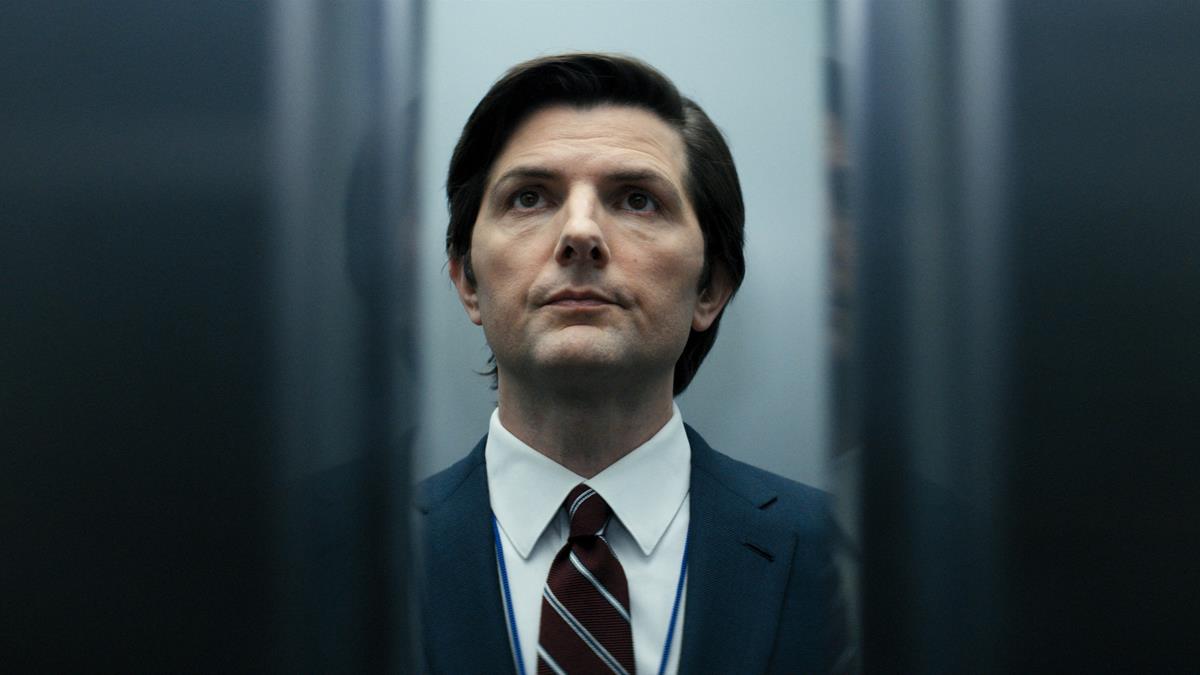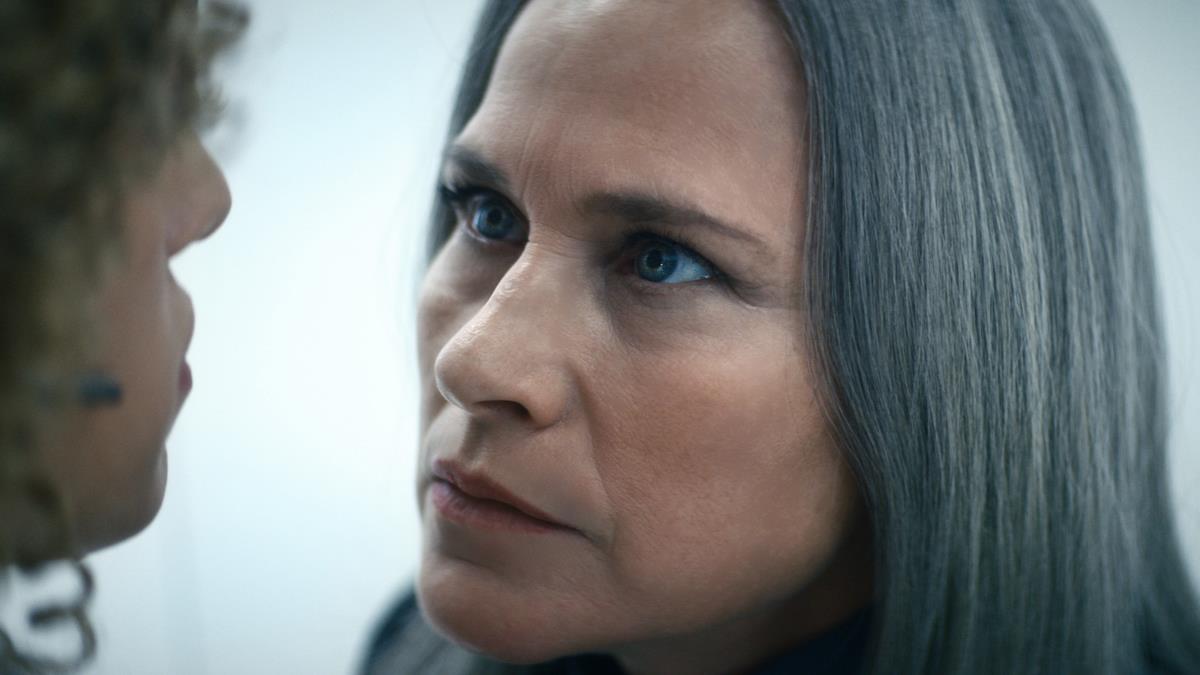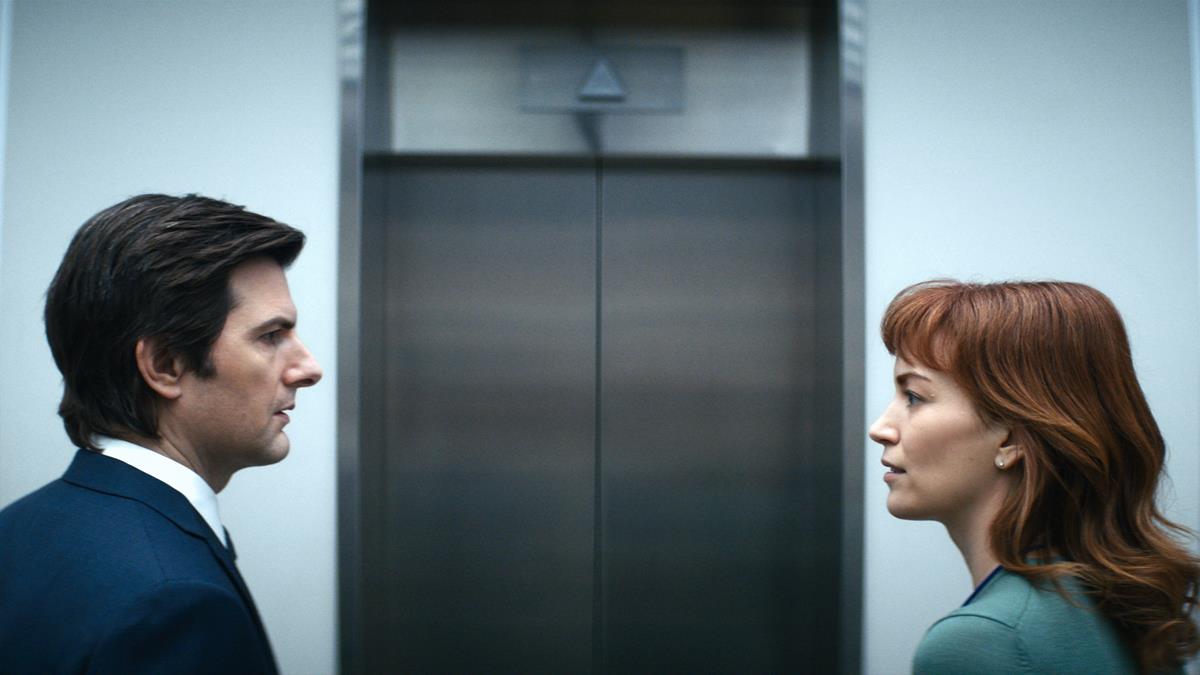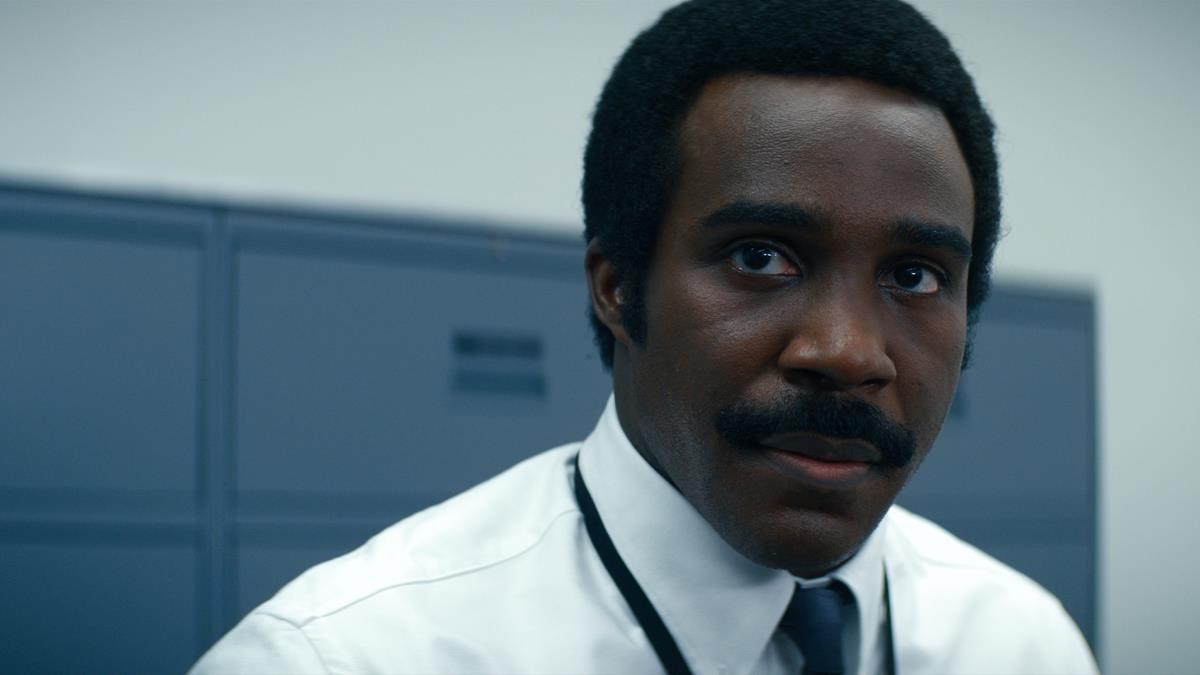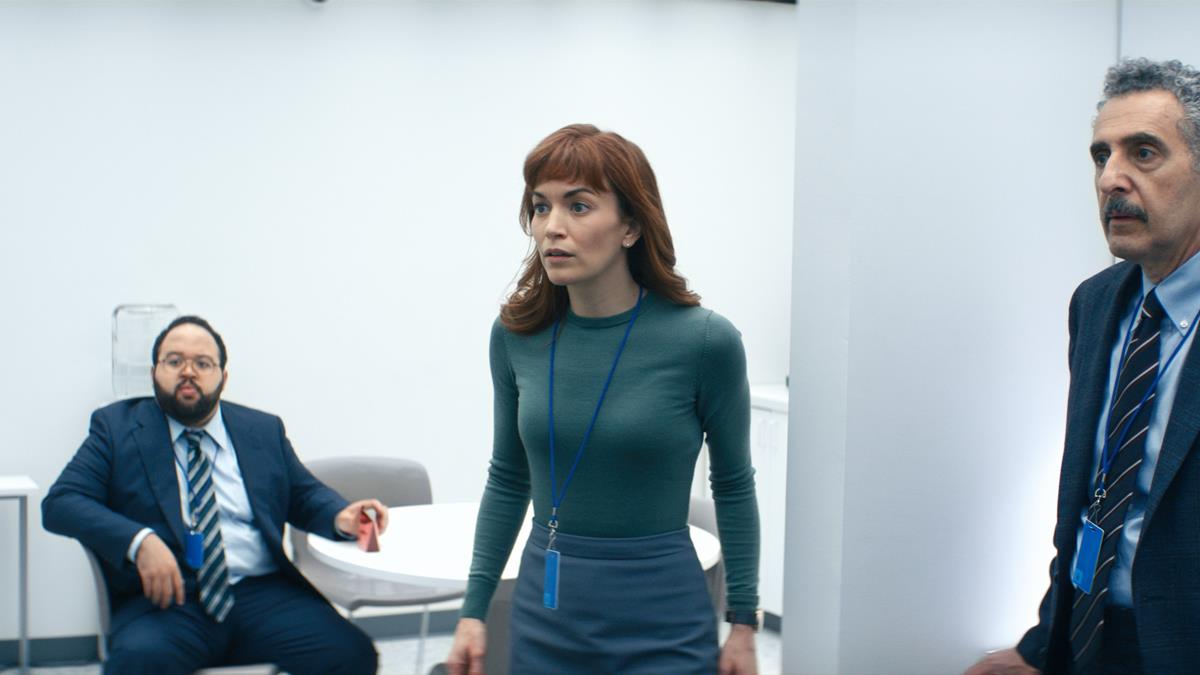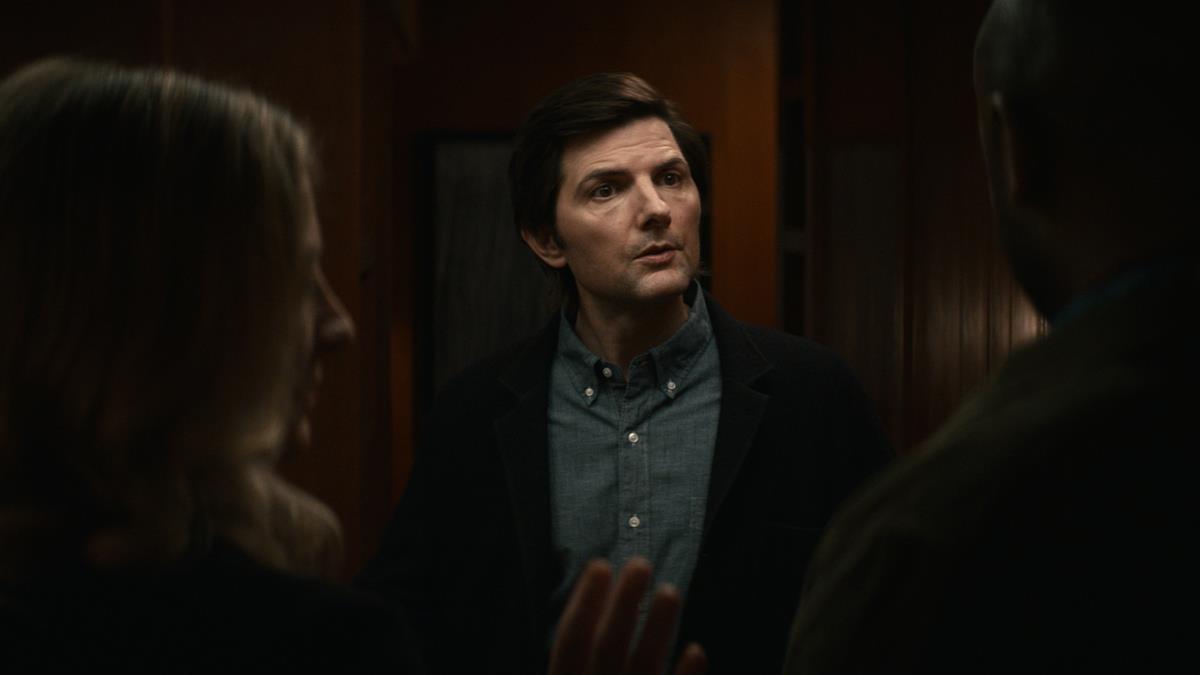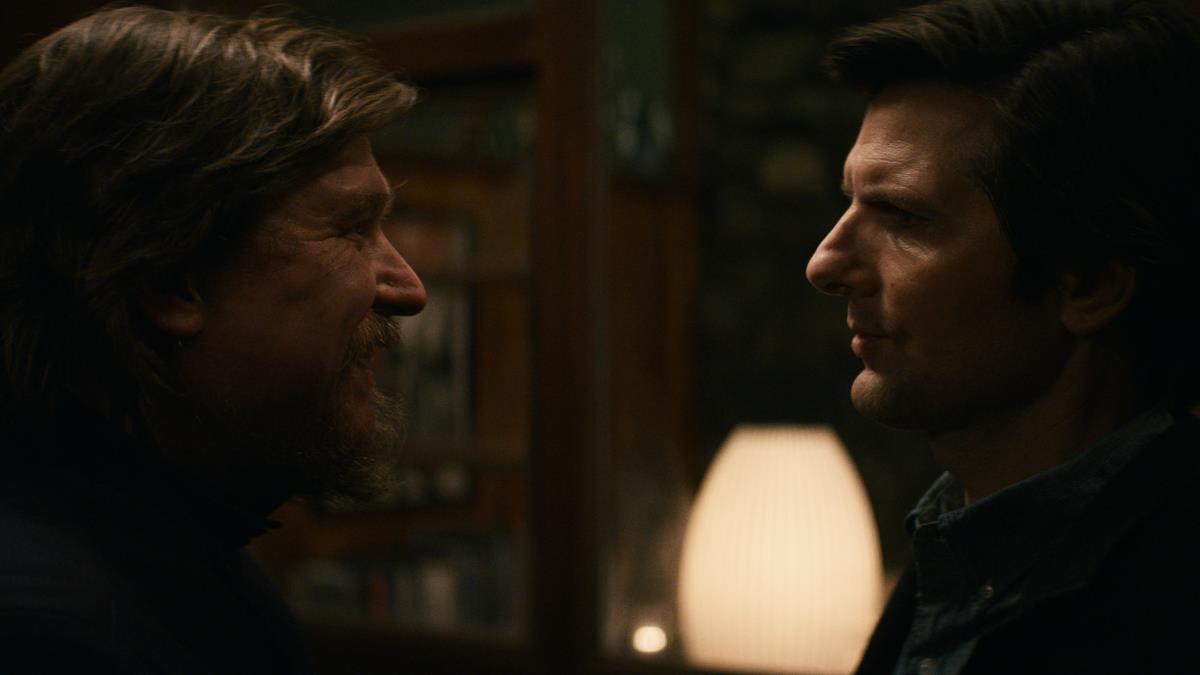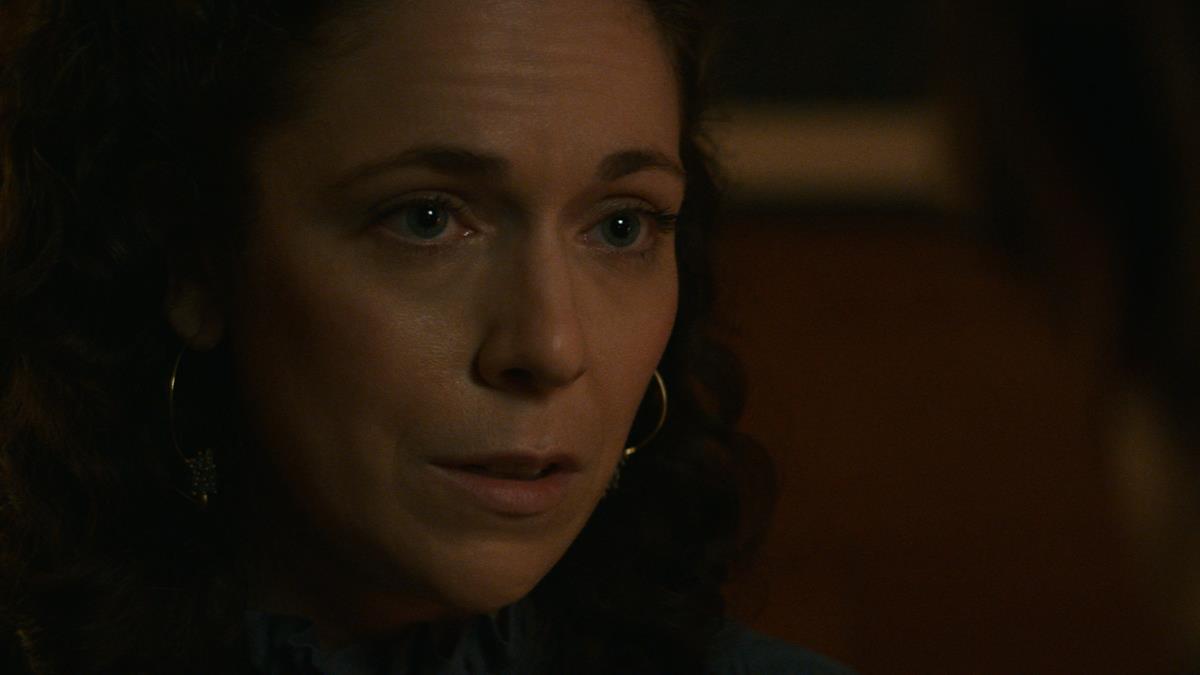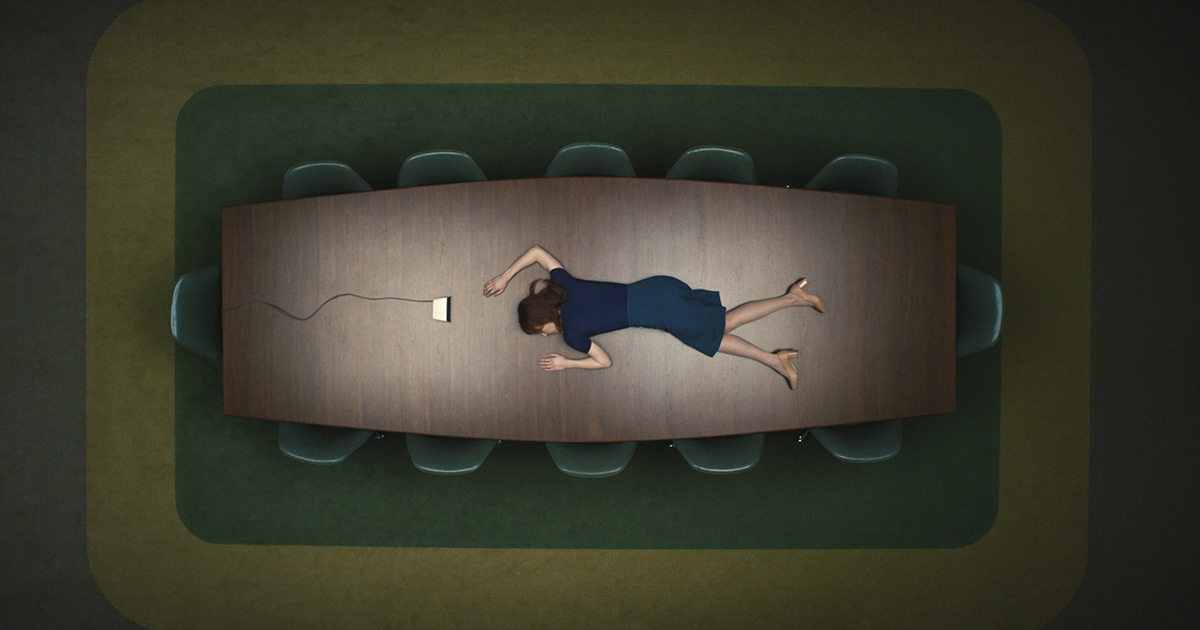
The Apple TV+ series Severance puts a new spin on the work-life balance. A mix of sci-fi and social satire, Severance is gaining plaudits for its vision of a corporate world that’s as sinister as it is sterile.
As Film School Rejects puts it, the people in Severance can’t simply clock out of work because their work is their life. Or, rather, their work is a perfectly bisected portion of their lives.
The enigmatic series follows the lives of a pod of workers who are employed by Lumon Industries, a powerful company with a long and corporate cult-like history. Each of the series’ main characters willingly underwent a procedure called severance, which involves implanting a device in one’s brain that will wall off work memories while at home, and home memories while at work.
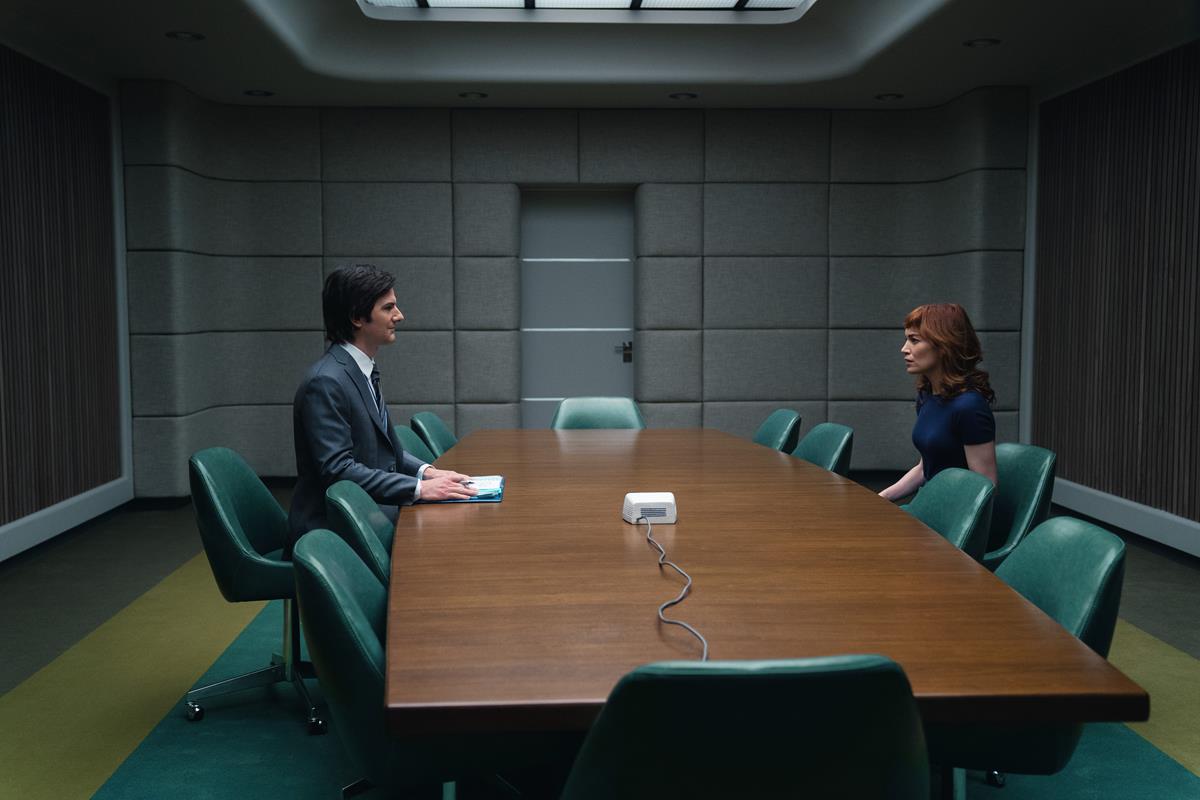
Ben Stiller, who directs six of the nine episodes, optioned the script by Dan Erickson through his production company Red Hour, telling Forbes, “The idea of going to work where you have a chip put in your head and you forget everything about your life when you’re at work and when you leave work, you don’t remember what happened was just such an interesting and kind of tantalizing idea.”
At first, this seems like a quaint premise that could be used for an easily digestible slice of social commentary, but it soon becomes clear that the series has built out every corner of its own freaky world.
“This isn’t just a neat trick to turn people into focused worker bees; it essentially turns them into two people,” explains Film School Rejects. “Characters in the show call them ‘innies’ and ‘outies.’ The ‘outies’ don’t remember the classified work they do all day, but the ‘innies’ have it much harder. They don’t remember if they have kids or partners. They don’t experience sleep, or know how to drive, or have any sense of whether or not their experiences at work are normal.”
“Whilst some might call Severance’s premise outlandish, or far out in the future, Stiller begs to differ,” A’bidah Zaid writes in Geek Culture. “In fact, the 56-year-old actor/director had done plenty of research in preparation for the series and learned that such a procedure could potentially happen.
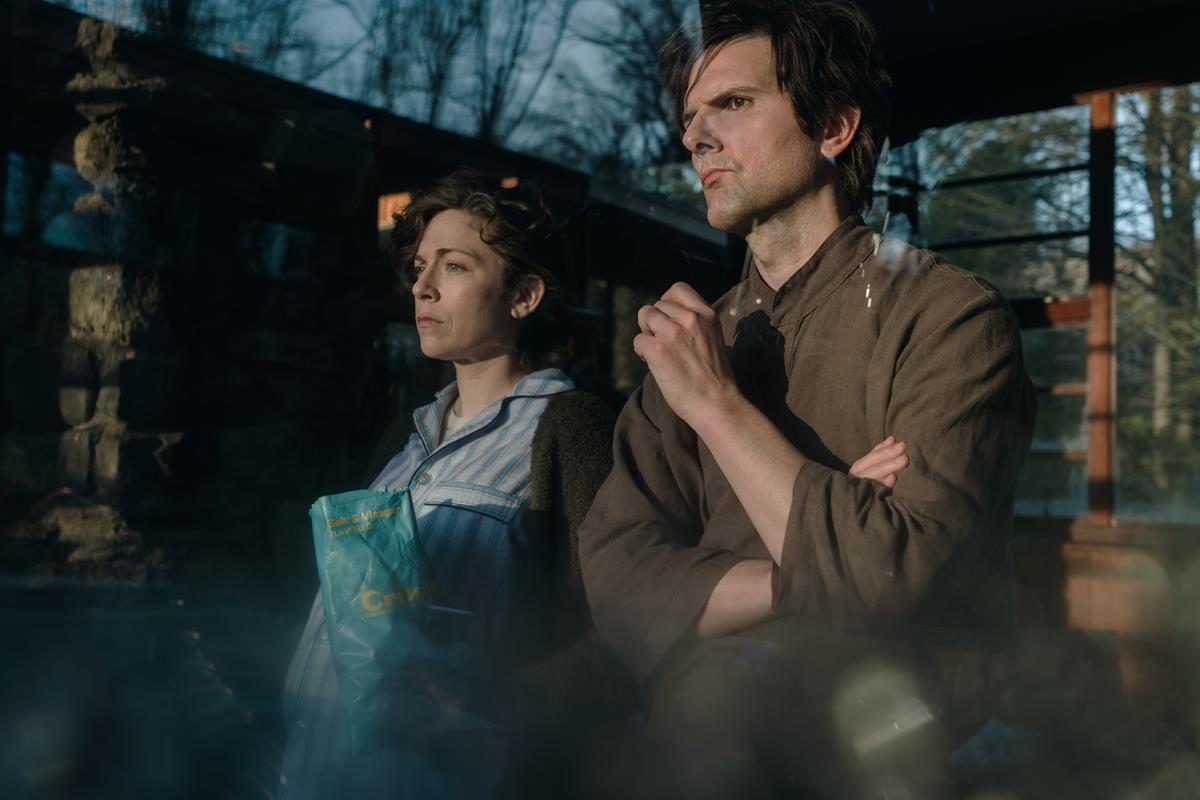
Zaid says Stiller referenced Tesla CEO Elon Musk’s “Neuralink” brain microchip: “I guess it was semi science-fiction-y, but not really because this technology exists. I mean, I just saw Elon Musk promoting this new company, that’s doing this exact same thing,” Stiller tells Zaid. “It’s actually a thing so it’s not that crazy! We consulted with a neurosurgeon and a couple of doctors to talk about what this reality would be. It could happen in some form.”
READ MORE: Geek Interview: Ben Stiller And Adam Scott On How Apple TV+’s Sci-Fi ‘Severance’ Is Closer To Reality Than One Thinks (Geek Culture)
Kevin Fallon of The Daily Beast finds the concept of severance appealing, “especially given the state of modern work culture.”
“Maybe a 9-to-5 wouldn’t feel as mind-numbing if there was no context of an outside world. Maybe the endless pursuit of Inbox Zero wouldn’t pummel at your will to live and rob you of trivial things like ‘relaxing, ever’ or ‘sleeping at night’ if an inbox ceased to exist the second you clocked out for the day,” he says. “And maybe, too, you would be more productive if you weren’t preoccupied by a fight with your spouse, [or] figuring out your kids’ schedule… as you try to do work.”
Fallon sees “the genius of Severance” as the slow-burn revelation that this isn’t an easy fix to a universal crisis. “It is, as is everything to do with work culture and corporate incentive, nefarious and disturbing in ways we’re perhaps unprepared or unwilling to recognize we’re already on the path toward bringing to fruition,” he adds. “Severance exposes the inevitability of something like this, a world in which we are lobotomized in order to better serve a company’s bottom line. The series will make you wince at its spot-on sendups of the tactics that employers take to gaslit staff into believing they’re satisfied.”
READ MORE: Apple TV’s ‘Severance’ Proves Going to Work Is Worse Than a Horror Movie (The Daily Beast)
The jumping off point is fascinating and sets up many interesting questions about the nature of our relationship to work and the work environment. “It was a question of, where should we go tonally with the show? Because we didn’t want it to go to a familiar place, necessarily,” Stiller told Variety.
In the same interview, Patricia Arquette, who plays one of the company managers, says, “there was so much structure” in the fictional company, but also within the making of the show itself, in terms of “the composition of the shots, in the wardrobe,” which helped establish “the behind-the-scenes working of this corporation and all the years we’ve been in it and how it had informed how we communicate with people.”
READ MORE: The Insidious, Cryptic World of ‘Severance’: How Ben Stiller, Adam Scott and More Brought ‘Strange Humor’ to Apple’s Workplace Thriller (Variety)
WATCH THIS: “Jessica Lee Gagné Is a Scientist of Cinematography”
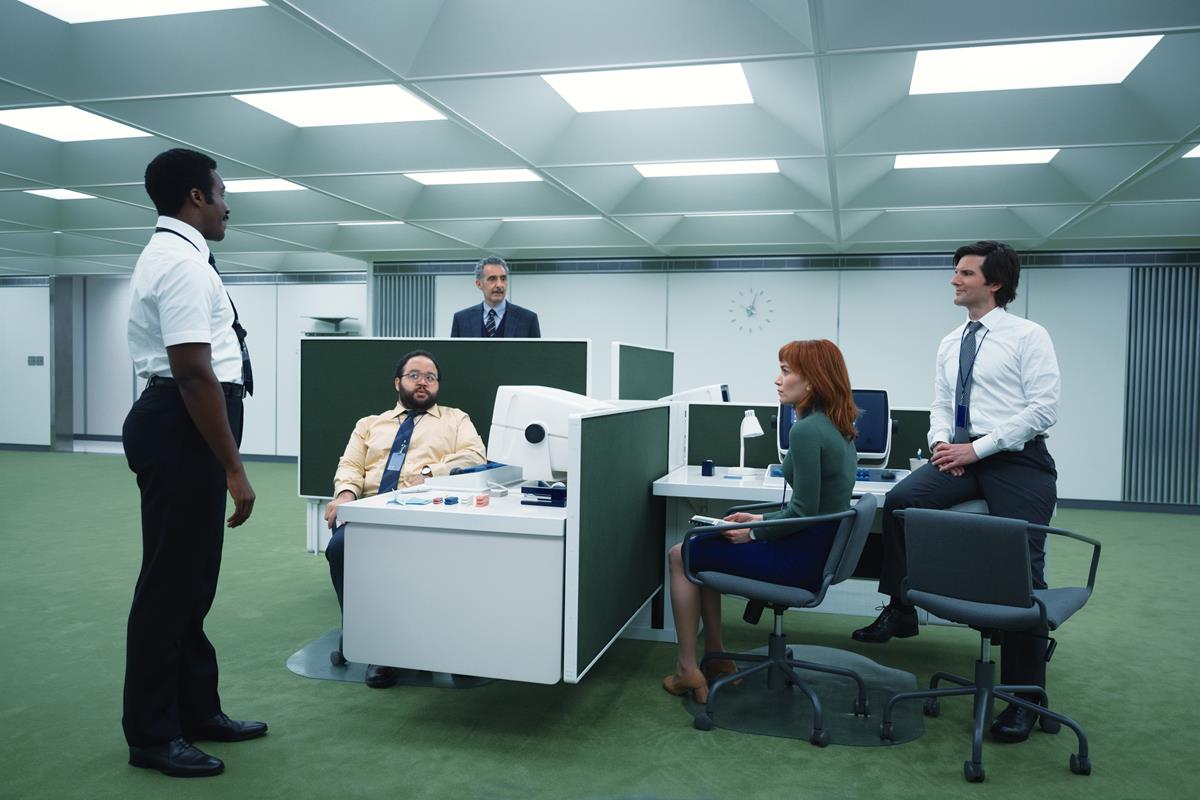
IndieWire’s Ben Travers observes the show’s “unsettling symmetry; balancing and unbalancing compositions in order to undercut the inherent comforts of routine and uniformity.”
This is a function of camera work (by series cinematographer Jessica Lee Gagne) and production design (by Jeremy Hindle). “The oners down an endless maze of white corridors. The way cubicle walls slide up and down to trap workers in tight frames,” Travers writes. “The contrast between the timeless stasis of antiseptic office life and the bristling cold of a messy existence above ground. It’s a striking, immersive design, if you’re on or off the clock.”
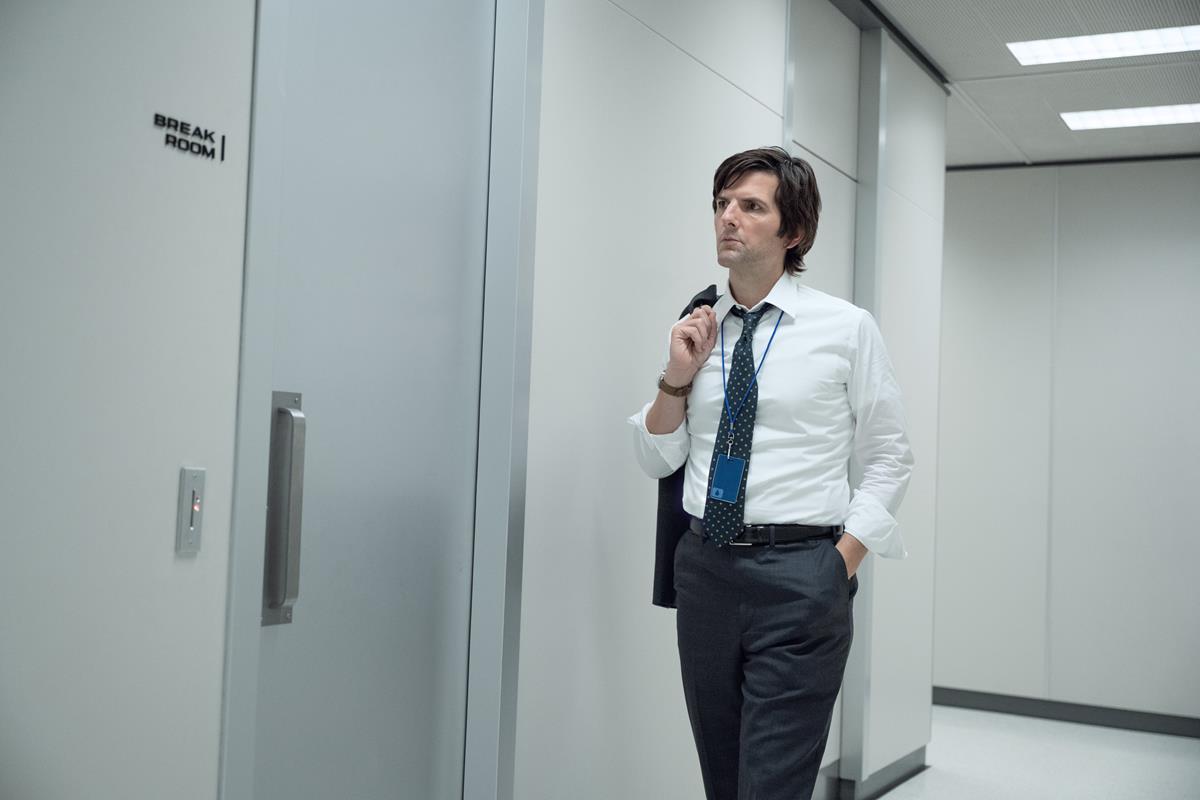
READ MORE: ‘Severance’ Review: Ben Stiller Directs a Brilliant Corporate Conspiracy Thriller That’s All Too Real (IndieWire)
In the series, Mark (Adam Scott), Irving (John Turturro), and Dylan (Zach Cherry) sit in a small, four-sided cubicle space within a massive white room, focused on computer screens displaying a series of numbers.
The series is shot with “a sometimes alienating precision,” describes Film School Rejects, “moving quickly between the outie memories and the innie experiences to communicate the disorientation of severance. As Lumon’s interests grow more confounding and menacing, the building starts to feel like an inescapable funhouse full of ever-twisting hallways.”
READ MORE: ‘Severance’ is an Ominous and Ingenious Workplace Thriller (Film School Rejects)
Stiller first shared his ideas around the show with Scott in 2017.
The actor told Collider’s Carly Lane that “Mark” was a role he’d been waiting his whole career for.
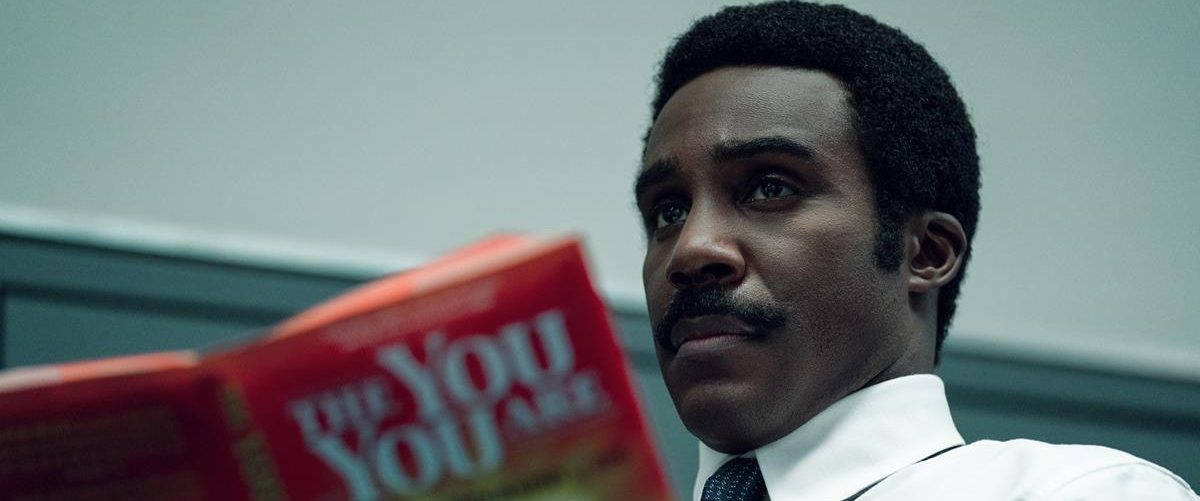
“I just couldn’t stop thinking about it because it’s just such a great idea. It’s one of those ideas you can’t believe no one’s explored before,” says Scott. “And then a couple years later, I actually got to read a script… [it’s] exactly the kind of thing that I like to watch as an audience member.
“It had this fun workplace comedy, with this weird sinister vibe underneath it,” Scott continues. “It has satire and kind of thriller elements and suspense and science fiction. It had all this terrific stuff yet it’s completely character-driven. So as an actor, it was just a dream role and truly felt like something I’d been waiting my whole career to be able to do.
READ MORE: ‘Severance’: Ben Stiller and Adam Scott on the Long Road to Making the Apple TV+ Thriller Series (Collider)
As for Stiller, he tells Joe Deckelmeier of Screen Rant that Scott’s work on Parks and Recreation made him the perfect choice to lead the cast in Severance.
“Adam is one of these actors who can operate in different spaces,” says Stiller. “He has an amazing sense of humor. There’s a certain tone to The Office comedy, the workspace comedy that’s developed over the last, I think, 20 years or so that Adam has perfected and it’s amazing. It’s fun that he can play within that. He’s like a machine with these fine dials that you can just tweak one way or the other… He’s very open about trying things, but really he has this other thing that’s underneath. You’re talking about it for outtie Mark, there’s a real depth there and a desire to go there as an actor. And I think that’s all you could ask for when you’re working with somebody. So I had the best time working with him.”
READ MORE: Adam Scott & Ben Stiller Interview: Severance (Screen Rant)
As The Atlantic’s Sophie Gilbert notes, “Severance is very funny while not actually seeming to be a comedy.”
“Arquette’s explosions of anger and Michael Chernus’s delightfully bizarre turn as Mark’s brother-in-law, a self-help author, come close to Dadaist performance art,” Gilbert says. “Similarly, Severance is thoughtful while shying away from an actual worldview — the show tends to toy with deeper meaning like a cat with small prey, batting it around in front of our eyes. There’s just so much going on. Every visual detail seems primed to evoke a specific emotional response or loaded with significance for some later reveal.
NOW STREAMING — BEHIND THE SCENES OF FAN-FAVORITE SERIES:
As the streaming wars rage on, consumers continue to be the clear winners with an abundance of series ripe for binging. See how your favorite episodics and limited series were brought to the screen with these hand-picked articles plucked from the NAB Amplify archives:
- “Severance:” Now, About Solving the Work/Life Balance…
- Entering “The Gilded Age”
- Class Is Definitely Not In Session: The Horror Delights of “All of Us Are Dead”
- “The Dropout” Is a Slow-Motion Car Crash (and We Can’t Look Away)
- The (Unavoidable) Universal Appeal of “Squid Game” Is By Design
“Instead of one obvious twist that leaves you squirming, Severance proffers hundreds of tiny digs at workplace culture, white-collar burnout, and corporations that see employees as mere unmet objectives,” adds Gilbert. “When Lumon managers sense that their team members are struggling with the unnatural state of permanent work, they send them for “wellness checks” with an in-house counselor, much as Amazon reportedly sends its exhausted warehouse workers to “AmaZen” stations for guided meditations and other well-being activities.”
READ MORE: When Work Is a Terrifying Dystopia (The Atlantic)
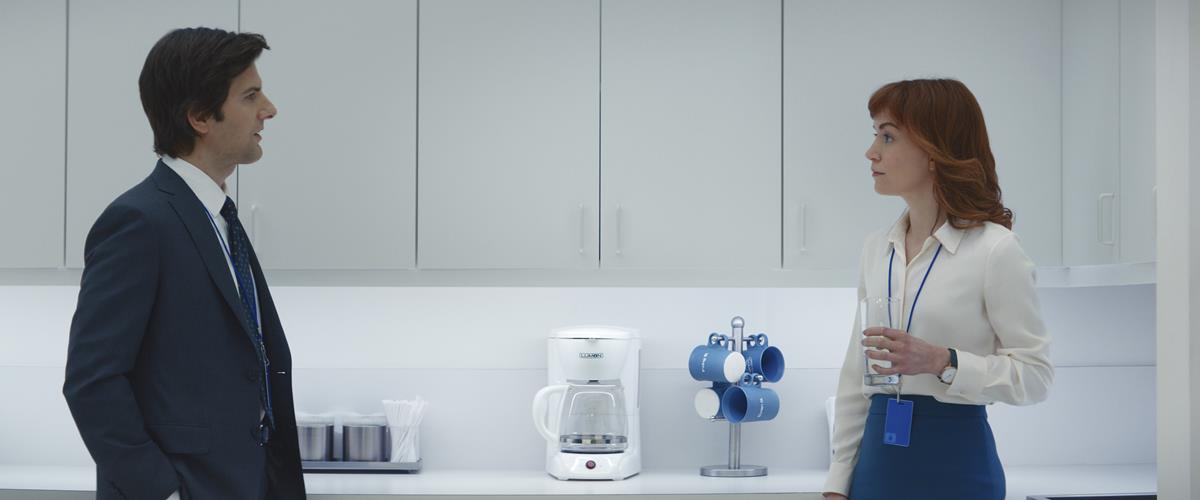
But comedy is the genre most associate with Stiller. “People do ask me, ‘Why were you drawn to this? You’re not a guy who does these kinds of things,’” Stiller tells Esquire’s Ryan D’Agostino. “‘You’re funny. Be funny.’ I get it. But I don’t analyze it. In my mind it made total sense.
“Maybe it’s something ingrained in me from the movies I watched as a kid that had a big effect on me, and there was a wide range,” Stiller adds. “There were the crazy disaster movies, like The Poseidon Adventure. Or Jaws. Or sci-fi movies in a weird dystopia, like Planet of the Apes. All of those I loved. There was a human quality about all of them, but in a disconnected world. There are human desires and human emotions that are there no matter what, and people figure out a way to fight through barriers. People figure out a way to connect.”
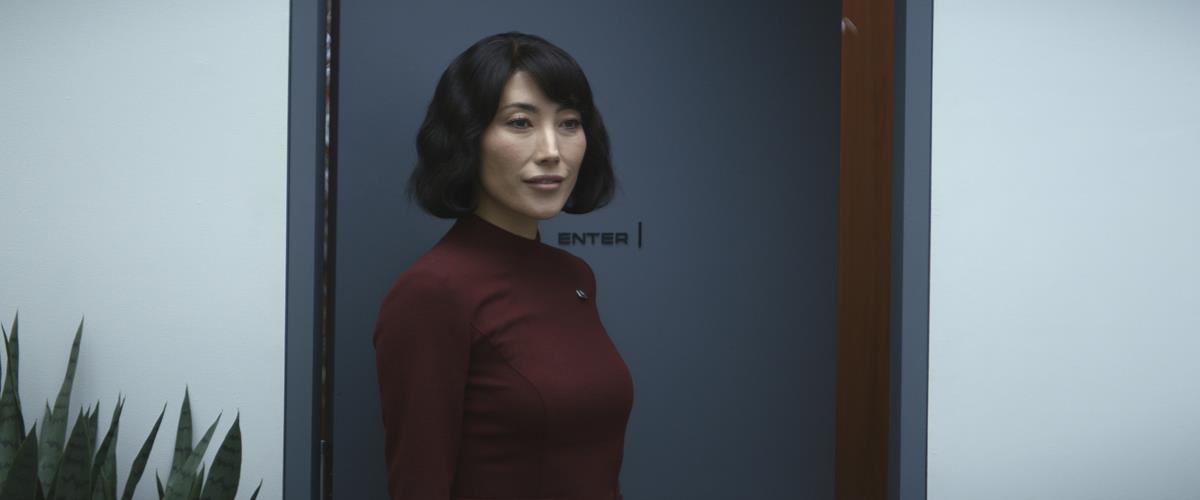
But he’s as proud of making people laugh as he is of Severance. “I wouldn’t want anyone to think that I want people to not like Dodgeball,” Stiller says. “I’m really grateful for Dodgeball. When I think about it, I laugh. I like the movie and the ridiculousness of it, and there’s part of me that would want to keep doing that stuff. It’s just trying to figure out, what’s going to engage me in this moment? And some days it does feel like a silly comedy could do that.”
Read More: Ben Stiller Sees the World Differently Now (Esquire)
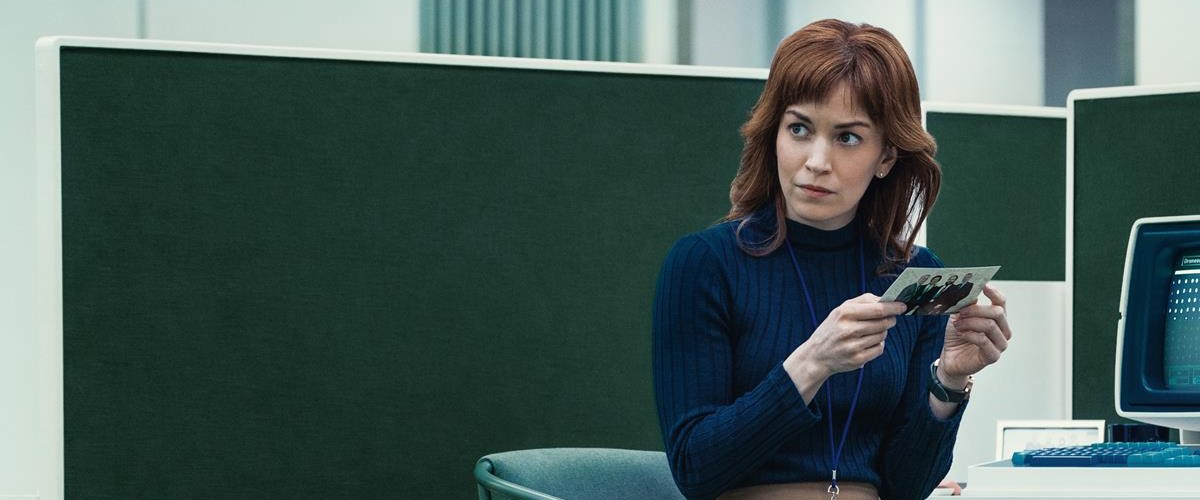
Stiller seems to have approached the scripts as if wondering “what if Hitchcock had directed The Office?” ponders AV Club critic Stephen Robinson, adding that Severance’s deadpan humor “is more like Being John Malkovich than Zoolander and Tropic Thunder.”
Robinson later adds that some scenes feel like a David Lynch movie. “Yet, moments from Mark’s outside life play out like Noah Baumbach comedies with an undercurrent of The X-Files… It’s an instalment of The Twilight Zone that continues past the shock ending.”
The character of Helly, played by Britt Lower, is described by Robinson as a modern version of Patrick McGoohan’s character from The Prisoner. “She won’t be pushed, filed, stamped, indexed, briefed, debriefed, or numbered. You’re led to think that Mark is Helly’s Number 2, but he’s just as much as prisoner as she is.”
READ MORE: Apple TV Plus’ Severance offers a thrilling reminder of why we never want to return to the office (AV Club)
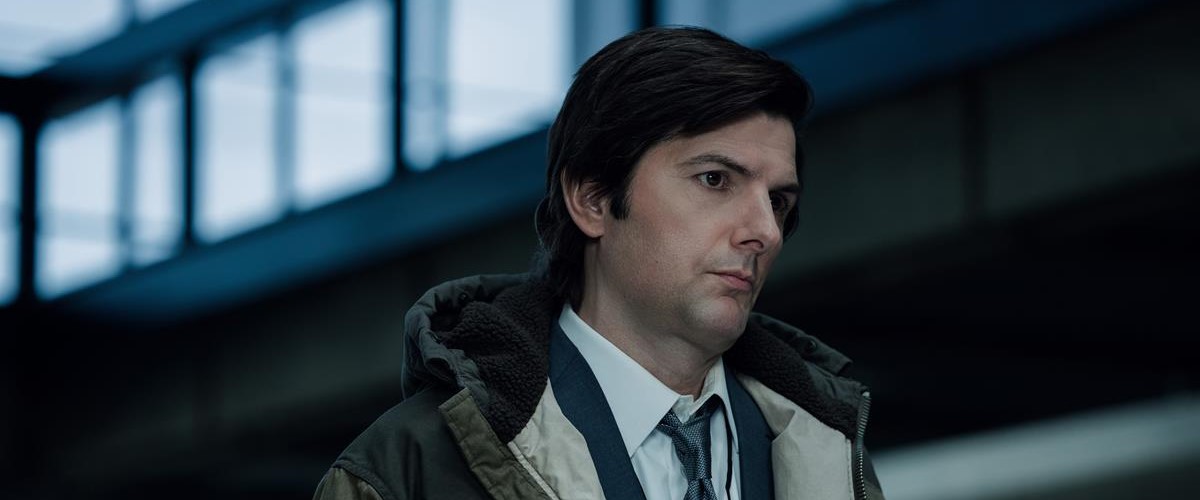
How Series Creator Dan Erickson Wrote a Fake Self-Help Book for “Severance”
By Abby Spessard
Even with all the intricate world-building it took to make Severance, it’s the small details that creator Dan Erickson had the most fun designing. Especially the book The You You Are, which features prominently in the series.
“The book is utterly ridiculous,” IndieWire’s Christian Zilcov comments.
“It’s me purging all the dumbness I have,” Erickson jokes, “but then it keeps coming back somehow. It’s so fun and so ridiculous.”
But within that ridiculousness, Zilcov writes, “fans have enjoyed watching Mark apply the nonsensical platitudes to his very real problems.” Erickson does as well.
The Ben Stiller-directed Severance follows Lumon Industries employee Mark Scout (Adam Scott), who elects to undergo the controversial Severance procedure, designed to provide the ultimate work-life balance. The book in question was ostensibly written by Mark’s brother-in-law, Ricken (Michael Chernus) and serves as inspiration to the team of “innies” working at Lumon. The You You Are becomes a beacon that allows the innies to cope with what Zilcov calls their “sterile and joyless” work environment.
Erickson credits Chernus for inspiration while he was creating the fake book. “I would just sit at my desk and do a little Michael impression and try to get in that headspace,” he recounts, noting that the book’s funniest lines come from doing these mental impressions.
“If I could, I would write the in-universe books and materials all the time,” Erickson says. “I really like writing the show, too, but I think that’s my favorite thing to do.”
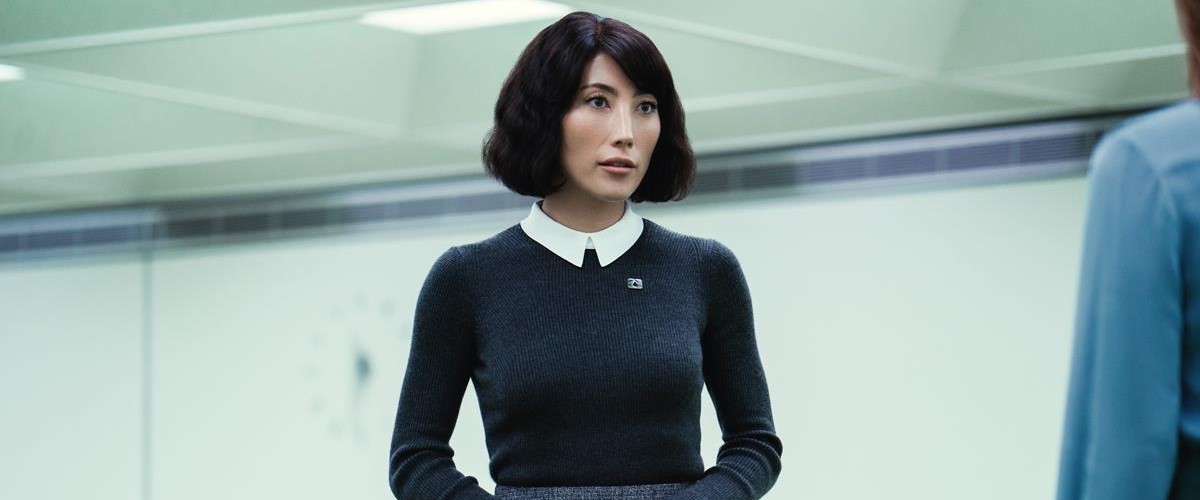
Indeed, critics can’t seem to get a fix on the show’s genre. When the series zig-zags into mind-melting corporate thriller territory, for Film School Rejects it calls to mind “the better parts of less focused shows about similar subjects, like Homecoming and Mr. Robot.”
Wired critic Kate Knibbs suggests Stiller has distilled the sensibilities of writer-director Charlie Kaufman. “Like Eternal Sunshine of the Spotless Mind, (which Kaufman wrote) it’s about a man trying to deal with the grief of lost love by messing with his memory via experimental surgery. Like Being John Malkovich, it uses a high-concept mind-control premise to explore knotty questions about identity. Like Adaptation, it’s fond of genre-hopping and piling twists and turns on top of twists and turns. And, as with Kaufman’s best work, it’s at least as funny as it is trippy.”
READ MORE: Severance Turns the Workplace Comedy Into a Horror Show (Wired)
Asked by Tyler Aquilina of Entertainment Weekly how he arrived at the proper tonal balance, Stiller reveals that the way Erikson wrote gave the series “the opportunity to have a few different things going on at the same time.”
Stiller had to balance “that humor versus the anxiety underneath it,” and ask himself questions like: “is there a sci-fi aspect to this, or is it a workplace comedy, and how weird is it?”
“The fun of it was trying to figure that out and play with that,” continues the director. “Dan laid it out in his writing, but then the casting and the approach each actor took to it really ended up informing that. The hope I had was that we were going to figure it out as we went along: That feels like too much, or this feels like it might be too broad or that might be too weird, or, how do we ground this moment? It was a constant conversation that was going on for a couple of years, really, back and forth with Dan and the actors.”
READ MORE: Ben Stiller talks Severance’s long road to TV and the challenge of work-life balance (Entertainment Weekly)
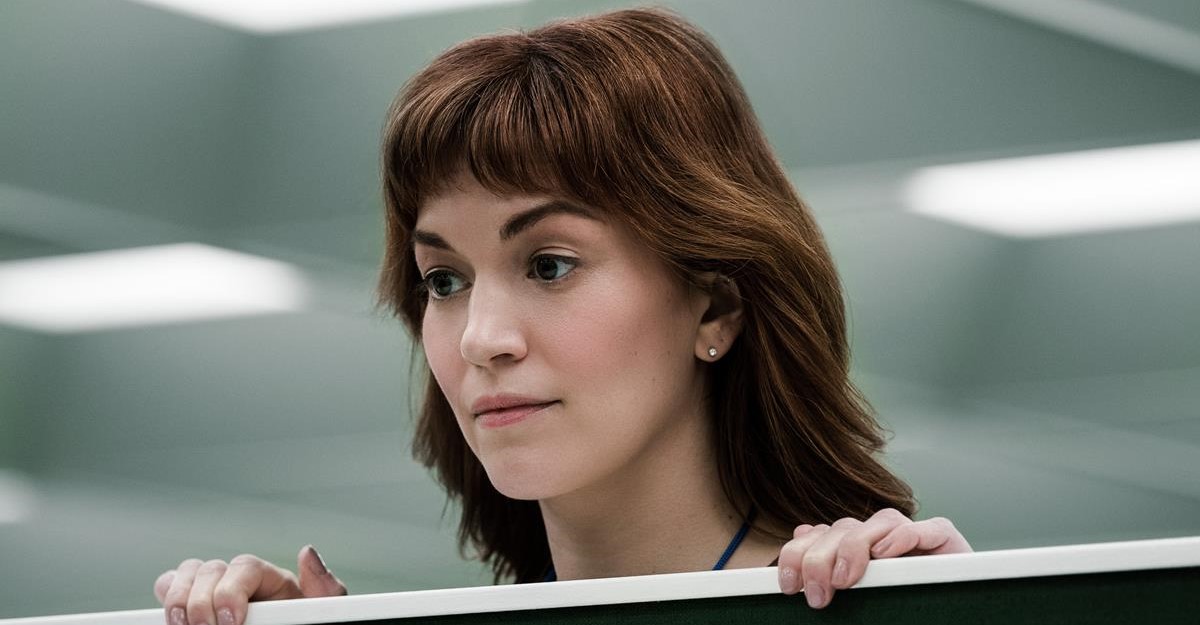
What gives the show its sting, according to NPR’s John Powers, is the way that Mark and his comrades’ story tap so engrossingly into the anxieties that, even in post-COVID working conditions, many people feel about their jobs:
“How companies try to own us, how employees feel like cogs in corporate machines that they fear may be actually ruining the world, how many people bury themselves in work to avoid dealing with the difficulties of their personal lives and how many of us already live a de facto version of Severance. We have two different selves, one for work, where we play a role, and one for home, where, if we don’t feel depleted, we can be who we really are.”
READ MORE: ‘Severance’ puts a witty, unsettling spin on the office drama (NPR)
To aid the impression that we’re in a huge multi-national corporation, the show was filmed at the Bell Labs Holmdel Complex in New Jersey, reveals Apple Insider’s Malcolm Owen. “The floor that houses the severed workers took advantage of the mid-century architecture to give an unusual feel,” he adds. “The use of older architecture does ‘make sense’ to Stiller, as “for severed people, they never see the outside world, so the company wouldn’t necessarily have to renovate or upgrade or update or change, because these people are never really seeing what’s going on in the outside world.”
Owen observes that this idea of detachment also feeds into the idea of how old-school computers are used, and Stiller adds: “They wouldn’t want them to be connected in any way digitally with the outside world, so the idea was to keep all of the technology very much in-house there and sort of older and a little bit analog.”
READ MORE: Apple TV+ thriller ‘Severance’ born from creator’s ‘corporate misery’ (AppleInsider)
Stiller reflects on what these past two years have done to working conditions in Hollywood.
“One of the things I’ve really noticed recently with the pandemic was looking at the unions and talking about the work situation for crews, which is something that has just been entrenched for a long time — with the hours we work and the turnarounds on those hours for crews, basically just to save money,” Stiller told Forbes. “And so, I think that was a really important thing that changed. Everybody was looking at their priorities and looking at really what was important in life and that’s just something that has been a thing in show business for a long time that was just accepted and I think that’s changing, which I think is a really good thing.”
For a time, the series creators, directors and talent questioned its relevance. Eric Francisco, writing for Inverse, reports that during a widespread pivot away from the office, Erickson was concerned that his show, scripted before 2020, was an antiquated relic of pre-COVID life.
“Severance began production on the brink of the Great Resignation — an ongoing phenomenon where a dissatisfied workforce has quit en masse due to worsening systemic problems typically found in the workplace. A record 4.9 million Americans quit their jobs in November 2021 alone,” says Francisco.
“While the COVID-19 pandemic alone didn’t cause workers to quit, the threat of an airborne disease exacerbated frustrations that feel needless in the face of stagnant wages, rising costs of living, the violation of boundaries between work and home, and the looming specter of death. It’s all been enough to encourage workers of all types to rethink livelihoods. Severance’s arrival is unintentionally in sync with the national mood.
“There’s no question we made this show during a volatile time,” Erickson says. “What’s amazing [to me] is how much more relevant it became, as the lines between work and home life broke down… We started shooting the day after the 2020 election. We shot the opening scene, of Helly waking up on the table, on January 6th, with rioters inside the Capitol. There was always a pressure to tell a story that was relevant to a rapidly changing, increasingly uncertain world.”
READ MORE: ‘Severance’ is the sci-fi thriller every office worker needs — here’s why (Inverse)
Want more? Collider Interviews Adam Scott and Ben Stiller about what drew them to work on the series. Stiller recounts how Dan Erickson came to him with the idea for the show, noting, “I was immediately taken by the tone and sort of the influences in it that felt very original, but also familiar and something I hadn’t seen before in terms of just the world of this show and the concept, the very simple concept that he came up with.”
Scott recalls that when Stiller first brought the idea to him in 2017, “I just couldn’t stop thinking about it because it’s just such a great idea. It’s one of those ideas you can’t believe no one’s explored before.”
Watch the full interview in the video below:
In an appearance on Good Morning America, Adam Scott and Ben Stiller talk about work-life balance and their new series Severance:
Stiller also talks about how he found the artist for the opening credits to the show on Instagram, the similarities between Severance and Escape at Dannemora, and winning an Emmy for The Ben Stiller Show:
Cinematographer Jessica Lee Gagné explains to Go Creative Show’s Ben Consoli why she was initially hesitant about filming the series. She also discusses her visual approach to the “innie” and “outie” worlds, the challenges of making the bland, stark-white office space of Lumon Industries visually interesting, how they achieved the Severance elevator transition look, and more:
Check out an example of the elevator transition effect:
Have you ever wondered what kind of person you would be without any memories? Check out this spoiler-free analysis of Severance as it explores various topics — identity without memory, episodic memory, semantic memory, procedural memory, identity beyond memory, cosmic memories, and so much more:
Watch the cast and crew discuss their experiences making the five-time Emmy-winning series during the Severance panel at SDCC 2022:


